Career of the Week
Career of the Week 52 Estate Agent

Career of the week 52 Estate Agent
https://www.unifrog.org/student/careers/keywords/estate-agent
https://www.planitplus.net/JobProfiles/View/214
What you'll do
You could work for an independent estate agent or a chain. This could be online or in a high street agency.
Your day-to-day tasks may include:
- visiting sellers and landlords to value properties
- arranging appointments and showing properties to buyers or renters
- getting feedback on viewings
- negotiating between buyers and sellers
- generating sales leads for mortgages and conveyancing
- managing auction sales
- working under pressure to meet sales targets
- updating computer records
Working hours and environment
You're likely to work Saturdays as well as weekdays.
If working for an online agency, you’ll be based in an office. If working for a high street agency, you’ll spend some of your time in an office but also visit properties with prospective buyers and sellers, renters and landlords.
Your pay might depend partly or fully on commission.
Some employers might provide a company car.
Career path and progression
With experience and a good sales record, you could be promoted from sales negotiator to senior negotiator and then branch manager.
Larger chains of estate agents may offer more opportunities for promotion than smaller companies.
You could also become self-employed as a partner in a firm, or set up your own agency.
Skills required
- a smart appearance
- excellent communication and organisational skills
- an interest in selling
- a good knowledge of property law and the local property market
- patience and powers of persuasion
- good negotiating skills
- the ability to meet targets
- IT skills.
You need to be able to:
- work as part of a team as well as on your own
- work well under pressure
- make good business decisions
- calculate figures accurately.
Entry requirements
There are no formal entry requirements, but experience in sales or customer service and a good knowledge of the local property market will help you get a job.
You may be able to start as an administrator in estate agency or lettings.
You could also get into this job through an apprenticeship.
You'll usually need a driving licence.
Related university subject profiles
These university subjects are related to this career; check out their profiles on the Subjects library:
- The following organisations may be able to provide further information.
- National Association of Estate Agents
Tel: 01926 417 790
Website: http://www.naea.co.uk/
Twitter: @naea_uk
Facebook: https://www.facebook.com/naea.uk
Watch this video
https://youtu.be/lsnACY-EqCM

Career of the Week 49 Carpenter or Joiner

https://www.unifrog.org/student/careers/keywords/carpenter
https://www.planitplus.net/JobProfiles/View/203
What you will do
You’ll work as an employee or a self-employed contractor for large and small construction companies. You may work on a construction site, a client’s premises, or in your own workshop.
Depending on where you work, your day-to-day tasks may include:
- discussing plans and following instructions
- cutting and shaping timber for floorboards, doors, skirting boards and window frames
- making and fitting wooden structures like staircases, door frames, roof timbers and partition walls
- making and assembling fitted and free-standing furniture
- installing kitchens, cupboards and shelving
- building temporary wooden supports to hold setting concrete in place (shuttering)
- making and fitting interiors in shops, bars, restaurants, offices and public buildings
- constructing stage sets for theatre, film and TV productions
Working hours and environment
You'll usually work 39 to 45 hours a week, Monday to Friday. You may need to work some weekends or evenings to meet construction deadlines.
This is a physically active job. You could work outdoors in all weathers, up ladders and on scaffolding or roofs. You could also work indoors where conditions could be dusty or cramped. You'll use protective equipment and clothing on all jobs.
You'll normally travel between sites, and you may need to work away from home at times.
You’ll need a full driving licence and may need your own van and tools.
Career path and progression
With experience, you could become a team leader or project manager.
You could also move into construction estimating and contracts management, or specialise in areas like stage sets or heritage restoration.
Skills required
You'll need:
- to be able to follow technical drawings and plans
- maths skills to calculate quantities and angles
- the ability to pay close attention to detail and make accurate measurements
Entry Requirements
Employers usually look for some on-site experience and qualifications. You could start as a joiner's 'mate' or labourer to get site experience. Once working, your employer may offer you training on the job.
You could take a college course in carpentry and joinery to gain some of the knowledge and practical skills needed to improve your chances of finding work in the industry.
You could get into this job through an apprenticeship.
You'll need a Construction Skills Certification Scheme (CSCS) card to work on a building site.
Go Construct has more information about building careers and training.
Related university subject profiles
These university subjects are related to this career; check out their profiles on the Subjects library:
- Building surveying and Construction
- Crafts, Jewellery, and Woodworking
- Interior and Landscape design
Related career profiles
You may also be interested in:
More Information
For more information please see organisation listed below:

Career of the Week 48: Baker or Confectioner
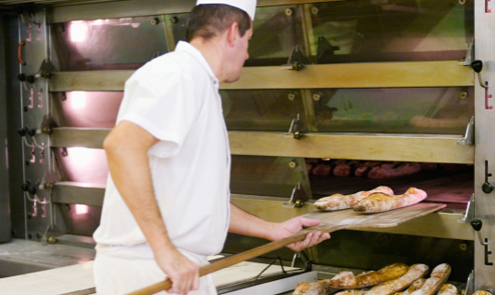
https://www.planitplus.net/JobProfiles/View/347
https://www.unifrog.org/student/careers/keywords/baker>
What you will do
You'll work in an industrial (plant) bakery, an in-store bakery or a craft bakery. At an industrial bakery, you'll make large amounts of baked goods for shops and supermarkets. As an in-store baker, you'll use machinery to make bread products to be sold in the shop.
Your day-to-day tasks could include:
- making sure you have enough supplies
- measuring out large quantities of ingredients
- working safely with machinery like power mixers, industrial ovens and production lines
- making dough
- working out cooking times
- keeping production areas clean
- developing new products
- decorating cakes and pastries
- slicing, wrapping, and labelling the products
- displaying and selling goods
- following rules on hygiene, health and safety
You might specialise in making sweets or chocolate, as a confectioner or chocolatier.
At a craft or 'artisan' bakery, you'll work by hand and create fewer products.
Working hours and environment
You'll usually work 40 hours a week. You may have very early starts or work nights or weekends.
Bakeries can be noisy and dusty places. This may cause problems if you have asthma, dust allergies, or certain skin conditions.
You may need to do some lifting.
You may also need your own transport if working early or late shifts.
Conditions
You could work in a small shop, a supermarket or a plant (factory) bakery.
- In a small shop you would do most work by hand and would have a variety of tasks.
- In a supermarket you would use machinery to bake prepared mixes.
- A plant bakery is like a factory producing large quantities of a limited range of food. You would work at a conveyer belt or use machinery for all stages of the production.
Conditions in all cases would be similar.
- You would probably start work very early in the morning.
- You would sometimes work at weekends and possibly at night.
- You would wear protective clothing and perhaps ear protectors.
Career path and progression
With experience, you could become a bakery supervisor, charge hand or production manager.
As an in-store or industrial baker, you could move into a job at a flour mill or become a sales representative.
You could also become a technical adviser or development baker for a baked goods or equipment company.
Another option is to become a craft baker and set up your own business.
Skills required
You should have:
a passion for food
creative ideas and skills
a steady hand
a responsible attitude, especially to following health, safety and hygiene regulations
measuring and maths skills
practical skills
organisational skills and the ability to work to deadlines
Entry Requirements
You may find it useful to have GCSEs at grades 9 to 4 (A* to C) or equivalent, in subjects like:
- English
- maths
- science
- food technology
You could start out by:
- doing a baking course at college
- applying to be a trainee in a bakery
- doing a baking apprenticeship
check out this video:

Career of the Week 47 Translator

https://www.unifrog.org/student/careers/keywords/translator
https://www.planitplus.net/JobProfiles/View/96
What you will do
Translators change the written word from one language into one or more other languages. They can work on a range of projects, such as scientific, technical or legal texts, or choose to specialise in one area of expertise. Most translators work in their native language, translating other languages into English.
You could work on a number of subjects and projects, or specialise in a particular area, like:
- scientific, technical or commercial material
- legal documents
- literary work
- media work
- subtitles
- educational resources
- online content
- materials related to national security (e.g. if you work for an intelligence agency, such as MI6)
Your day-to-day duties might include:
- reproducing the text clearly, accurately and in the style intended by the author
- using your linguistic and cultural knowledge to process and make sense of information
- translating complex technical documents and identifying the important sections
- researching legal or scientific terms and consulting with experts to make sure the translation is accurate
- matching the culture of the target audience
In some large companies you may revise and edit a rough machine translation, created using a computer program.
You may also use other software like translation memory, together with a dedicated computer assisted translation tool.
Working hours and environment
You’ll work 9am to 5pm, Monday to Friday.
You’ll usually be office-based and you may work alone for a lot of the time. You may need to visit clients, experts or specialist organisations, but most contact would be by email, phone or post.
You may work abroad for an international organisation.
You could also work for an agency or as a freelance translator. You’ll choose your own hours, and may have to work evenings and weekends.
Career path and progression
With experience you could start your own translation agency, or move into teaching.
Skills required
You’ll need:
- the ability to to adapt to different styles and cultures
- a flair for research
- discretion and respect for confidentiality
- the ability to remain neutral and free of bias
- good IT skills, particularly word processing
Entry Requirements
A degree in a relevant subject will give you an advantage. Relevant subjects include:
- translation studies
- linguistics
- languages (a degree programme that includes some modules in linguistics or translation would be ideal)
You could also complete an undergraduate degree in a non-relevant subject, such as law, followed by a professional qualification, such as the Chartered Institute of Linguists (CIOL) Level 7 Diploma in Translation (DipTrans), or a postgraduate degree in translation studies.
If you have a degree and can translate two EU official languages into English, you may be able to apply for a paid translation traineeship with the European Commission.
It's also possible to enter the career without a degree if you're already fluent in two or more languages, especially if:
- one of those languages is rare
- you're able to specialise in a highly technical or specialised field, such as medicine or business
- you have a proven record of excellent language skills
watch this video:
Related career: Interpreter
https://www.unifrog.org/student/careers/keywords/interpreter

Career of the Week 46 Sports Coach

https://www.unifrog.org/student/careers/keywords/sports-coach
https://www.planitplus.net/JobProfiles/View/413
What you will do
Your work will vary depending on:
- who you’re coaching
- the type of sport you’re coaching
If you’re working with schools and community groups, you’ll:
- plan fun, engaging coaching activities, sessions and programmes in a safe environment
- give feedback on performance and help to improve technique
- work with young people, schools, community groups and sports organisations to promote the sport
If you’re working with young people involved in competitive sport, you’ll:
- design basic training programmes
- work on developing more advanced techniques and tactics
- support performers at events and competitions
If coaching at national or international level you’ll:
- design challenging and varied training programmes
- monitor the physical condition and mental attitude of the people you coach
- work with experts in sport like sports scientists, nutritionists, physiotherapists and programme managers
- mentor other coaches
Working hours and anvironment
You’ll often work in the evenings and at weekends, especially during competitions. You’ll usually work long hours if coaching at a high level.
Competitions take place all over the UK and abroad, so you’ll spend time away from home.
You’ll work in a variety of places, like schools, health centres, private health clubs and sports clubs.
You’ll spend a lot of time outside in all weather conditions.
Career path and progression
With qualifications and experience, you could become a coach development officer, helping other coaches develop their skills and qualifications.
Skills required
You’ll need:
- excellent communication skills
- the ability to inspire confidence and motivate participants
- the ability to assess and solve problems
- determination and patience
- good organisation skills
- a sensitive and supportive approach
- physical stamina
UK Entry Requirements
You’ll need a coaching qualification that’s recognised by the national governing body (NGB) for your sport. You can get these in one of the following ways:
- directly through a sport NGB
- as part of a college or university course that includes coaching
You’ll need clearance from the Disclosure and Barring Service (DBS).
Some employers will expect you to have a relevant higher education qualification like a:
- foundation degree in sports coaching and development
- HND in sports and exercise science
- degree in coaching, sports science, sports studies or physical education
You could start by volunteering as an assistant coach for a few hours a week to get experience.
You could also get into this job through an apprenticeship.
More Information
For more information please see organisations listed below:
Watch this video

Career of the Week 45: Aerospace Engineer

https://www.planitplus.net/JobProfiles/View/69
https://www.unifrog.org/student/careers/keywords/aerospace-engineer
Aerospace engineers design, build and maintain planes, spacecraft and satellites.
What you will do
You'll research, develop, build, and maintain aircraft or their systems. Your day-to-day duties will depend on your role but may include:
- developing navigation, communications, or weapons systems
- researching ways to make fuel-efficient parts, such as wings, fuselage and engines
- using CAD software for design
- testing prototypes
- collecting and analysing test data
- planning and supervising the fitting of aircraft and components
- signing off projects under strict industry regulations
- scheduling and supervising maintenance
You may also have to estimate project costs and timescales, write technical reports and manuals, and give presentations.
Many aerospace engineers choose to specialise in one type of aircraft, such as helicopters, or a particular area, such as aerodynamics, avionics, or propulsion.
Pay
The figures below are only a guide. Actual pay rates may vary, depending on:
- where you work
- the size of the company or organisation you work for
- the demand for the job.
The starting salary for graduate entrants is usually around £22,000 to £28,000 a year. With experience this can rise up to £45,000 a year. Senior engineers can earn up to £65,000 or possibly more.
Conditions
- You might work in a design laboratory and spend a lot of time working at a computer.
- You might work in production, in a factory where conditions can be noisy and where there can be the risk of accidents from equipment.
- You might work in an aircraft hangar when involved with testing and maintenance.
- In many cases you would work normal hours, but in factory work you may need to be on call outside normal working hours or to work shifts.
- You might have to travel to visit factories or experimental sites in other areas, possibly abroad.
Career path and progression
With experience, you could specialise in a particular field like:
- aerodynamics
- fuel efficiency
- space technology
- investigating air accidents
You could also move up to become a project manager or consultant aerospace engineer.
Skills required
You'll need:
- excellent numeracy skills
- problem solving skills
- IT skills including computer aided design or manufacturing (CAD or CAM)
- project management and budgeting skills
- technical skills
UK Entry Requirements
You'll usually need an HNC, HND, foundation degree, or degree in aerospace engineering, avionics, or a related subject, like:
- electrical or electronic engineering
- mechanical engineering
- manufacturing or product engineering
- physics or applied physics
- software engineering or mathematics
The Association of Aerospace Universities has more information about courses.
You could also start as an aerospace engineering technician apprentice with an airline operator, airline manufacturer or engineering company. You'd then continue your training up to degree level.
You'll usually start on a company's training scheme, and work towards your engineering licence, known as a Part 66, and issued by the Civil Aviation Authority (CAA). With a license, you can work as a qualified engineer.
Careers in Aerospace has information on careers in aerospace engineering.
Watch this video
Contacts
The following organisations may be able to provide further information.
Engineering Council
Tel: 020 3206 0500
Website: http://www.engc.org.uk/
Twitter: @EngCouncil
EngineeringUK
Website: http://www.engineeringuk.com
Twitter: @_EngineeringUK
Enginuity (formerly SEMTA)
Tel: 0845 643 9001
E-mail: Customer.Services@enginuity.org
Website: https://enginuity.org/
Twitter: @Enginuity_Org
Facebook: https://www.facebook.com/EnginuityOrg
Royal Aeronautical Society (RAeS)
Tel: 020 7670 4326
E-mail: careers@aerosociety.com
Website: http://www.aerosociety.com/
Website (2): http://www.careersinaerospace.com
Twitter: @AeroSociety
Facebook: https://www.facebook.com/RoyalAeronauticalSociety/
The Royal Aeronautical Society has a website called Careers in Aerospace which provides a wide range of information on careers in the aeronautical industry.

Career of the Week 44 Stage Manager

https://www.planitplus.net/JobProfiles/View/361/97
https://www.unifrog.org/student/careers/keywords/stage-manager
What you will do
Your day-to-day duties may include:
- making sure crew and performers are in the right place at the right time
- organising rehearsals
- working with staff to plan wardrobe, set design, scene changes, sound and lighting
- managing props and set dressing
- keeping the ‘prompt copy’ of the script, which notes what’s happening in each scene
- liaising with theatre managers and front-of-house staff
- supervising the 'get in' and ‘get out’ – the times when sets and equipment are set up and taken down
- giving cues for the performers to go on stage
- cuing sound and lighting effects
Working hours and environment
Hours can be long and unsocial. Meetings and rehearsals usually take place during the day, but performances are mainly in the evenings and at weekends. You'll often be the last to leave the venue late at night.
You might be permanently based at one venue, or you might travel to different venues when on tour. A driving licence may be needed for some jobs.
Career path and progression
With experience, you could manage a theatre company, become a theatre producer, or move into TV production.
Skills required
You’ll need:
- excellent planning, organisational and leadership skills
- confidence and decision- making ability
- the ability to multi-task and 'think on your feet'
- calmness under pressure
- a high level of attention to detail
- good IT and budget management skills
- passionate about the theatre and performing arts
- methodical and practical
- quick-thinking and confident in making decisions
- good with people: persuasive, patient and tactful
- resourceful
- adaptable
- energetic and have good stamina for working long hours
UK Entry Requirements
There are no set requirements, but you’ll usually need a diploma, foundation degree, or degree in a relevant subject.
Relevant subjects include:
- stage management
- performing arts
- theatre practice
- technical theatre
- theatre studies
You'll normally also need experience of stage work, like as a stagehand. You can get relevant experience from student, amateur or community theatre, or as a casual stagehand in local theatre.
You could also move into stage management after training as an actor, or by working your way up through backstage work.
You could get into this job through an apprenticeship.
Creative Choices has more information on working as a stage manager.
- The Association of British Theatre Technicians (ABTT) website lists job vacancies.
- Look for vacancies on the website Mandyas well as in trade journals such as Broadcast and Stage, Screen and Radio Magazine.
Take a look at The Stage online magazine for information on jobs and auditions.
related university subject profiles
These university subjects are related to this career; check out their profiles on the Subjects library:
Related career profiles
You may also be interested in:
Contacts
The following organisations may be able to provide further information.
Association of British Theatre Technicians (ABTT)
Tel: 020 7242 9200
E-mail: office@abtt.org.uk
Website: http://www.abtt.org.uk/
Twitter: @theabtt
Creative and Cultural Skills
Tel: 020 7015 1800
E-mail: info@ccskills.org.uk
Website: http://www.ccskills.org.uk/
Website (2): https://ccskills.org.uk/careers
Twitter: @CCskills
Facebook: https://www.facebook.com/ccskills
Creative and Cultural Skills is the Sector Skills Council for advertising, crafts, cultural heritage, design, music, performing, literary and visual arts.
Equity
Tel: 020 7379 6000
E-mail: info@equity.org.uk
Website: http://www.equity.org.uk/
Twitter: @EquityUK
Facebook: https://www.facebook.com/EquityUK
Membership of Equity is open not just those in the acting profession but to anyone working professionally in the field of entertainment.
tage Management Association (SMA)
Tel: 020 7403 7999
E-mail: admin@stagemanagementassociation.co.uk
Website: http://www.stagemanagementassociation.co.uk/
Twitter: @SMAssoc
UK Theatre
Tel: 020 7557 6700
E-mail: enquiries@soltukt.co.uk
Website: http://www.uktheatre.org

Career of the Week 43: Occupational Therapist
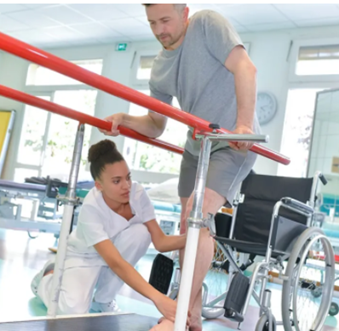
https://www.unifrog.org/student/careers/keywords/occupational-therapist
Occupational therapists help people overcome difficulties in day-to-day activities caused by physical or mental health problems, learning disabilities, accidents or ageing.
What you will do
You'll adapt treatment programmes to suit each client's needs and lifestyle. Main employers are the NHS and local authority social services. Your work could include:
- teaching an older patient recovering from a stroke how to do things for themselves
- encouraging someone suffering with depression to take up a hobby or activity
- suggesting ways to adapt an office so that an employee injured in a car accident can return to work
- helping clients adjust to permanent physical disabilities
- helping people with learning disabilities to live independently
You might work with patients for several months or just for a few sessions. You'll often work as part of a team of professionals, including physiotherapists, nurses and social workers. You'll keep notes about clients' progress, and advise and support clients and their families and carers.
Working hours and environment
You'll usually work standard office hours, Monday to Friday.
You could work with clients at a variety of places, including:
- hospitals
- health centres
- residential or nursing homes
- GP surgeries
- schools
- at a client's home or workplace
You'll need mental and physical stamina as this is a very practical job.
Career path and progression
You could progress to senior clinician or head of occupational therapy services in the NHS. You may also be able to move into general health or social services management.
You could also go into private practice, education or research.
Skills required
You'll need:
- the ability to design and develop individual treatment programmes
- excellent communication skills
- the ability to form good working relationships with a wide variety of people
- the ability to motivate clients who are disappointed or frustrated
UK Entry Requirements
You'll need:
- degree, or postgraduate qualification in occupational therapy approved by the Health and Care Professions Council (HCPC)
- registration with the HCPC
- to pass enhanced background checks as you may be working with children and vulnerable adults
To do a degree in occupational therapy, you’ll usually need:
- 5 GCSEs at grades 9 to 4 (A* to C) including maths and English
- 2 to 3 A levels, including at least one science subject (biology may be preferred)
To do a postgraduate course in occupational therapy, you'll usually need a degree in a related subject and some relevant paid or voluntary work experience.
UCAS has information on degree courses and entry requirements .
Before you apply for a course, it's a good idea to get some experience or knowledge of the profession. You could do this by contacting the occupational therapy unit at your local hospital, to ask how you could get involved.
You could also start out as an occupational therapy support worker. With support from your employer, you could take a degree while you're working and then register with the HCPC.
Health and Care Professions Council (HCPC)
Tel: 0300 500 6184
E-mail: education@hcpc-uk.org
Website: http://www.hcpc-uk.org/
Twitter: @The_HCPC
Facebook: https://www.facebook.com/hcpcuk
Health Careers has information about occupational therapy careers.
What Does it Take?
You should have:
- excellent observation skills
- good practical skills
- a creative approach to problem solving
- good organisational skills
- a patient, caring and understanding nature – to build and keep the patient’s trust.
You should:
- enjoy helping people and solving problems
- want to help people to have the best quality of life they can
- be resourceful and imaginative
- be able to respond to a patient’s needs
- enjoy responsibility.
Getting On
- You might specialise in a particular client group, such as children and young people, elderly people, brain injuries or learning disabilities.
- You could move into a senior post or into management.
- You might take further qualifications, perhaps for teaching or research work.
- You may be able to work abroad.
Watch this video: https://youtu.be/4M5wtPvpveo

Career of the Week 42: Charity Fundraiser
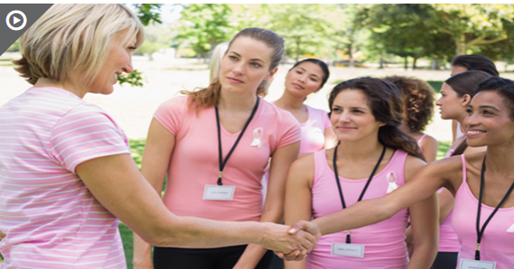
https://www.unifrog.org/student/careers/keywords/charity-fundraiser
https://www.planitplus.net/JobProfiles/View/617
A charity fundraiser is responsible for raising as much money as possible for their charity. They need to think of new and effective ways to raise money and publicity for the charity.
The Work
You could be:
- developing, carrying out and monitoring fundraising plans and achieving targets
- giving presentations in public or on radio or television about the organisation
- compiling lists of possible donors, both private and commercial, and producing regular newsletters for them
- organising and arranging events and activities
- developing and co-ordinating web-based fundraising
- recruiting and managing the volunteers doing telephone canvassing, street or door-to-door collections and events
- overseeing shop operations – controlling stock and managing staff
- managing the budgets, accounts, investments, donations and legacies
- applying for Government grants and Lottery funding.
Conditions
- You will work from an office but will travel to attend meetings and events.
- You will work unsocial hours, involving weekends and evenings.
- You will sometimes have short stays away from home.
- Part time work and short term contracts can be common due to the uncertainty of smaller charities' funding.
Getting In
Apply to voluntary organisations and pressure groups. Charities are in health, education, housing, animal welfare, environmental matters and overseas aid.
- Business studies, marketing, media and public relations are all relevant subjects.
- You might start out as a call centre fundraiser, making cold calls, or working in town and city centres, approaching the public for donations.
- Some people enter this as a second career, often after working as a volunteer with a charity.
- Volunteer positions are often available on charity websites
- Experience in business, sales, marketing or public relations would be useful.
- Employers prefer applicants to have a track record of fundraising so previous experience can be a distinct advantage.
- You may need a driving licence.
What does it Take?
You need:
- excellent networking and communication skills
- resilience
- business sense
- public speaking skills
- the ability to meet targets and work under pressure
- strong organisational and project management skills.
You should be:
- dedicated to the aims of the charity
- inspiring and persuasive
- good at motivating others
- proactive
UK Entry Requirements
There are no set requirements. Employers are usually more interested in your skills, experience, and commitment to working in the charity sector than in your formal qualifications. You’ll usually be expected to have one of the following:
- voluntary or paid experience of working in a charity, especially in a fundraising role
- related experience such as advertising, events or sales and finance
You could move into fundraising from other sectors like advertising, events or sales and finance.
A degree in a relevant subject like business, marketing, media or public relations can give you an advantage.
You could also work towards the Institute of Fundraising’s Introductory Certificate in Fundraising.
Watch this video
Find out more about volunteering:
Related University Subject Profiles
These university subjects are related to this career; check out their profiles on the Unifrog Subjects library:
- Business and Management
- Anthropology
- Marketing
- Public relations
- Sociology
- Theology and Religion
- Events management

Career of the Week 41 Road Transport Manager

https://www.unifrog.org/student/careers/keywords/road-transport-manager
What you'll do
Your day-to-day tasks may include:
- working with suppliers and customers, planning routes and scheduling delivery times
- managing a team of supervisors, administration staff and drivers
- making sure the operation meets its targets
- coordinating staff training
- putting together performance reports for directors
- arranging vehicle maintenance, MOTs and tax payments
- organising vehicle replacements
- managing contracts and developing new business
You'll also make sure that operations are carried out in line with UK and EU laws and regulations.
Working hours and environment
You'll usually work around 38 hours a week. This may include shift work and weekends to cover 24-hour operations.
Your time would be split between the office, the transport depot and your clients' premises.
Career path and progression
With experience, you could specialise in other types of transport, like rail, sea or air.
You could also move into transport planning and consultancy.
Skills required
You'll need:
- strong organisational skills for planning schedules, journeys and loads
- excellent budget handling skills
- the ability to think logically
- the ability to work flexibly and to make decisions quickly
- excellent communication skills and the ability to deal with people at all levels
- good leadership and motivational skills
- good geographical knowledge

Career of the Week 40 Magazine Journalist

https://www.unifrog.org/student/careers/keywords/magazine-journalist
https://www.unifrog.org/student/know-how/careers-library/career-specialisms-publishing-and-editing
What you'll do
Your day-to-day tasks may include:
- going to meetings to plan the content of the magazine
- suggesting ideas for articles
- interviewing and researching to collect information for articles
- writing articles to suit the magazine’s style
- keeping up-to-date with developments and trends in the magazine's subject area
- working as a critic, reviewing things like films, food or concerts
Working hours and environment
You’ll usually work 9am to 6pm. You may need to work longer or more irregular hours if you have a deadline.
If you’re freelance your hours will depend on how much work you have.
You may spend some of your time travelling, including overnight stays or overseas.
Career path and progression
With experience you may be able to progress to an editing position or move into another area like newspaper journalism, radio or TV.
You could go freelance and write for various publications, or become a staff writer.
Skills required
You’ll need:
- excellent communication and writing skills
- research skills
- self-confidence, and the ability to make people feel relaxed
- the ability to absorb information quickly
- the ability to write in an appropriate style
- keyboard and IT skills
UK Entry Requirements
There are no set requirements, but most new magazine journalists have an HND, degree or equivalent qualification.
Paid or unpaid work experience is a good way to build up your skills and a portfolio of published work to show employers. You could gain this with magazines or other publications, including student papers, fanzines, charity newsletters, websites or blogs.
You’ll usually need knowledge of the subject area your magazine deals with.
You may be able to get into this job through an apprenticeship.
The National Council for the Training of Journalists (NCTJ) and the Professional Publishers Association (PPA) run courses and have more information about careers in magazine journalism.

Career of the Week 39 Marine Biologist

https://www.planitplus.net/JobProfiles/View/543
What you'll do
Your role will likely include a mixture of laboratory work and field work (i.e. out in the natural environment).
Regular duties could include the following:
- Conducting surveys of marine species in a particular area to monitor and map populations and their movements
- Collecting samples (of seawater, animal or plant tissue, sand, etc.) to take back to the lab for analysis, e.g. testing the pH level of the water or checking for pollutants
- Interviewing local fishers and other stakeholders (e.g. factories, power stations, sailors, etc.) about local marine practices
- Assessing the environmental impact of proposed new construction projects or developments
- Writing and publishing reports of your findings
- Presenting your findings to governments or public agencies or at conferences
Skills required
- Research skills for collecting and analysing data
- Attention to detail and observation skills, particularly when doing field work
- Problem-solving skills
Depending on the focus of your field work, swimming ability and scuba diving skills might be useful. To get to the site of your field work, it would be useful to be able to drive a car (and potentially even a boat).
Conditions
You would probably work both in a laboratory and at sea.
In the laboratory:
- you may work long hours depending on the type of laboratory experiments you are working on
- you may have to wear a lab coat or other protective clothing.
At sea:
- you could be away from home, possibly for long periods, while doing field work
- you would wear protective clothing and use suitable equipment for your work
- you may have to dive – how deep would depend on the environment you are working in
- you would live in confined spaces with colleagues and crew members
- you may have to work in all weathers.
Getting In
- There are not many jobs in marine biology so entry is very competitive.
- You usually need a degree in marine biology, or a degree in biology or an environmental subject including specialisms in marine biology.
What Does it Take?
You need to be:
- practical, logical and methodical
- observant
- patient and willing to persevere
- accurate and careful in recording observations and results
- able to work as a member of a team, especially at sea
- willing to travel, for field work.
You should have:
- excellent written and verbal communication skills
- an enquiring mind
- an eye for detail
- good IT skills
- good analytical skills.
Training
- If you do research at sea, you should be trained in boat handling, survival at sea, emergency procedures, first aid, health and safety and Geographical Information Systems (GIS).
- You must keep up to date with new research in your specialism. You can do this by reading reports and attending conferences and short courses.
Getting On
- You may need to take a postgraduate qualification and gain professional qualifications.
- Specialisation in one particular area is usually needed to get on.
- Job opportunities may often be short term contracts (12-24 months) as projects are often funded by grants.
- You may need to be willing to move to where the jobs are to get experience, especially early on in your career. This may involve moving within the UK or moving abroad.
- With experience, you may be able to move on to lead projects or to manage a laboratory.
- You may progress to a job where you develop policies on conserving and developing marine stocks.
- You may move into marine environmental consultancy work, either with a specialist company or on a freelance basis.
Watch this video

Career of the Week 38 Food Scientist

https://www.unifrog.org/student/careers/keywords/food-scientist
https://www.planitplus.net/JobProfiles/View/380
Food scientists research and analyse the chemical, physical and nutritional aspects of food. Food technologists work on the processes of making, improving, preserving and storing food and drink products.
What you'll do
As a food scientist, you'll:
- provide accurate nutritional information for food labelling
- investigate ways to keep food fresh, safe and attractive
- find ways to save time and money in food making
- test the safety and quality of food
As a food technologist, you'll:
- blend new ingredients to invent and modify recipes
- conduct experiments and produce sample products
- design production processes and machinery
You'll need to follow industry regulations.
Skills required
You need to be:
- logical and methodical
- well organised and able to manage your time
- creative, to develop new products or processes
- responsible
- aware of good hygiene practices and health and safety procedures
- able to work in a team and motivate other staff.
You should have:
- strong written and verbal communication skills
- an interest in science and applying it to the food industry
- good attention to detail
- an enquiring mind
- good number skills to analyse and interpret test results
Career path and progression
You could work for a range of organisations involved in researching and developing new products, including:
- food manufacturers and supermarkets
- government and university research establishments
- local authorities
You could improve your career prospects by getting Registered Scientist (RSci) or Chartered Scientist (CSci) status through the Institute of Food Science and Technology.
With experience you could become a project leader or manage a department like research and development or quality control. You could also move into fields like chemical engineering, agricultural research, toxicology or nutrition science.
UK Entry Requirements
You'll usually need a foundation degree, HND or degree in a subject like food science, food studies or food technology. Employers may also accept other subjects like chemistry or nutrition.
Another way in is to start out as a lab technician and study towards qualifications while you work.
Working hours and environment
Conditions
- Depending on the job, you might work in a laboratory, factory or office.
- You may visit other branches of your company, suppliers of ingredients and manufacturers or buyers of your products – if you have to do this, a driving licence is useful.
- In research, you are likely to work regular hours.
- In manufacturing, you may have to work factory shifts including evenings and weekends.
- You would often have to wear protective clothing such as a lab coat, hairnet, gloves and a hat.
Watch this video:

Career of the Week 37 Animator

https://www.planitplus.net/JobProfiles/View/653
https://www.unifrog.org/student/careers/keywords/animator
What you'll do
You'll work in animated films, TV, adverts, games, websites, or music videos, using hand-drawn, traditional, computer-generated imagery (CGI), stop-frame, stop-motion or model animation techniques.
Your day-to-day duties could include working with others like:
- production designers to create the look
- storyboard artists to take the script or ideas and show the story in a visual way
- layout artists to draw how each shot will look
- digital painters to touch up colours
- texture artists to 'paint' colour and texture onto digital models to make them lifelike
- compositors to join together different layers of animation
Skills required
You'll need:
- creativity and imagination
- drawing and modelling skills
- communication and presentation skills
- IT skills
Career path and progression
With experience, you could progress from a junior role to animator, lead animator and animation director.
You could also work for larger animation studios, games developers, interactive media designers or video post-production firms.
You might decide to go freelance or start your own studio.
Related university subject profiles
These university subjects are related to this career; check out their profiles on the Subjects library:
- Computer games design and Games programming
- Computer science and AI
- Graphic Design
- Film and Photography
UK Entry Requirements
You'll need skills in drawing, modelling or using computer animation packages.
An animation or art-related HND, foundation degree, degree or postgraduate course could be helpful.
You could start as a studio runner and progress to assistant animator.
You'll need a showreel or online portfolio to show your talent.
You could also enter animation competitions, visit festivals, and send short animated films or ideas to broadcasters. This will get you known in the industry and help you to start building a network of contacts.
What Does it Take?
You should have:
- imagination and creativity
- the ability to work to a brief as well as develop your own ideas
- good IT skills, to use specialist animation software such as Flash, Photoshop and Illustrator
- excellent drawing or sculpting skills
- good sense of colour and style
- an eye for small detail
- good concentration skills
- a good sense of timing
- creative ability to solve technical problems.
You need:
- patience
- the ability to accept criticism
- good communication skills to present ideas
- the ability to work to deadlines and under pressure
- the ability to work either alone or as part of a team
- business skills if you are self-employed.
Training
- Courses are available in animation and visualisation, 3D computer animation, animation and multimedia and computing for graphics and animation.
- The National Centre for Computer Animationat Bournemouth University runs postgraduate specialist courses.
- You need to keep up to date with new software packages.
- The ScreenSkills website has careers advice on working in the many areas of animation.
Getting On
- You could move into consultancy work, or get a job abroad. Animators are in demand internationally.
- If you are an employee of a production company you could progress to become director of animation.
- You could work in animated special effects. Current uses include advertisements and feature films for large screen and television, computer animated simulation rides, computer games and virtual environments and web graphics.
Watch this video

Career of the Week 36 Animal Welfare Inspector

https://www.planitplus.net/JobProfiles/View/281/13
https://www.unifrog.org/student/careers/keywords/rspca-inspector
What you'll do
Your day-to-day tasks may include:
- advising owners on proper care and issuing warnings
- rescuing animals and arranging medical treatment
- putting animals down humanely
- taking a case to court
- inspecting kennels, pet shops and agricultural shows
- working with local authorities to rescue injured deer or foxes
- writing reports
- giving talks to educate the public
To rescue animals, you may need to climb cliffs or trees.
Skills required
You'll need:
- the ability to handle animals confidently
- excellent communication skills
- the ability to handle confrontational or distressing situations
- accurate report writing skills
Career path and progression
With experience, you could progress to chief inspector then regional superintendent.
You could move into management or training roles at the RSPCA headquarters.
UK Entry Requirements
You'll need:
- 5 GCSEs at grades 9 to 4 (A* to C) including English and maths
- experience of working with animals
- a driving licence
- the ability to swim 50 metres fully clothed
You'll need to pass a background check by the Disclosure and Barring Service (DBS).
The Royal Society for the Prevention of Cruelty to Animals (RSPCA) website has more information about this career.
Working hours and environment
You'll usually work 35 hours a week. You'll work shifts including nights, weekends and bank holidays.
- You would have to travel on a regular basis to respond to call-outs and to make inspections. This might be over quite a wide area.
- Much of the work might be outdoors, and the working conditions can be cold, wet, dirty, smelly or dangerous.
- It can be upsetting working with sick, injured and badly treated animals.
- There can be a risk of attack from sick, injured, nervous or aggressive animals.
- You may have to face threatening behaviour from the owners of abused animals.
- You would wear a uniform and further protective clothing where required.
Watch this video:

Career of the Week 35 Graphic Designer

Graphic designers produce designs using images and words to get across ideas and information.
Working to a 'brief' from a client, senior designer or account executive, they create designs for adverts, packaging, menus, books, posters, letterheads, company logos and magazines.
https://www.unifrog.org/student/careers/keywords/graphic-designerWhat you'll do
You could work in print or online, in marketing, publishing, product or games design.
Depending on your role, your day-to-day tasks may include:
- discussing the client's requirements and coming up with creative ideas
- working out budgets and deadlines
- producing rough drafts and presenting your ideas
- preparing designs using specialist software
- making presentations to clients for feedback and approval
- producing a final layout
- explaining requirements to photographers, printers, manufacturers or games developers
- keeping up with design trends and developments in software tools
Skills required
You'll need:
- excellent communication, IT and writing skills
- attention to detail
- design and presentation skills
- organisational and budgeting skills
Career path and progression
You could become a senior designer, creative director or move into management.
You could go freelance or start your own design agency.
The Chartered Society of Designers (CSD) and the International Society of Typographical Designers (ISTD) have resources to help you progress your career.
Another option is to move into teaching or lecturing.
Conditions
- You would work in a design studio or office, usually with a team of other designers.
- If you work freelance you would work from home or share a studio space.
- You would liaise with printers, clients, marketing professionals and sometimes photographers.
- You might travel about the country to visit exhibitions, clients and printers.
- You would work regular hours, but would have to work some evenings and weekends to meet deadlines.
- You may be able to work part time.
What Does it Take?
You need to be:
- artistic, creative and imaginative, with a good eye for colour and design
- skilled in using graphics software
- ambitious and motivated
- accurate, with excellent attention to detail
- good at listening to other people and explaining your own ideas
- aware of commercial pressures
- confident and outgoing, to sell work to clients.
You need to be able to:
- accept criticism of your work
- keep up to date with new design trends
- organise your own workload
- work to strict deadlines
- understand different printing processes
- work alone and as part of a team.
Watch this video

Career of the Week 34 Midwife

https://www.planitplus.net/JobProfiles/View/296
https://www.unifrog.org/student/careers/keywords/midwife
What you'll do
Most jobs are in the NHS but you could also work in private hospitals and clinics, or overseas.
Your day-to-day tasks could include:
- giving pregnant women advice on issues like healthy eating
- explaining options like giving birth in hospital or at home
- running classes about pregnancy (antenatal) and parenting
- checking the health of mother and baby during pregnancy
During labour, you'll:
- check how labour is progressing
- monitor the baby during labour
- give pain relief or advise on ways to manage pain
- deliver the baby
- call a doctor if you notice any problems
After the baby's born, you'll give advice to families on caring for their baby.
You could also visit people's homes to check on mother and baby.
Skills required
You'll need:
- excellent listening and communication skills
- practical skills
- the ability to inspire trust and confidence
- the ability to remain calm under pressure
- teamwork skills and the ability to work on your own initiative
- excellent organisational and time management skills
UK Entry Requirements
You'll need:
- a degree in midwifery
- to register with the Nursing and Midwifery Council (NMC)
- clearance from the Disclosure and Barring Service
Full-time courses usually take 3 years. If you're a registered nurse, you may be able to qualify in 18 months.
Health Careers and the Royal College of Midwives have information on a career as a midwife.
The Nursing and Midwifery Council has information on midwifery training and registration.
Working hours and environment
You'll work around 37 hours a week, including evening, weekend and night shifts.
You could split your time between working in the community and working in hospitals.
You could work in hospital maternity units, GP surgeries, midwife units and birth centres. As a community midwife, you'll go to clinics and visit clients in their homes.
The job is physically and emotionally demanding.
UK Current Jobs
Nursing and midwifery professionals (SOC3)
UK jobs: 556,471
Cumbria jobs: 4,981 (30th of 214 UK LEAs)
Top 5 LEAs: Lancashire (13,807), Kent (12,810), Essex (12,336), Hampshire (12,264), Birmingham (10,596)
UK Salary
Midwives (SOC4)
UK annual median: £38,736
Nursing and midwifery professionals (SOC3)
North West annual median: £33,917
Top 3 regions: London (£39,864), South East (£36,258), East of England (£34,520)
Health professionals (SOC2)
UK growth: +14.9% from 2017 to 2027, creating 230,412 jobs
North West growth: +13.2% from 2017 to 2027, creating 19,803 jobs
https://www.unifrog.org/student/subjects/careers-library/nursing-and-midwifery
watch this video:

Career of the Week 33 Paediatrician

Physicians who diagnose, treat and help prevent children's diseases and injuries.
https://www.unifrog.org/student/careers/medicine-and-nursing/paediatrician
what will you do?
- Advise patients, parents or guardians, and community members concerning diet, activity, hygiene, and disease prevention.
- Plan and execute medical care programs to aid in the mental and physical growth and development of children and adolescents.
- Examine children regularly to assess their growth and development.
- Collect, record, and maintain patient information, such as medical history, reports, or examination results.
- Refer patient to medical specialist or other practitioner when necessary.
- Explain procedures and discuss test results or prescribed treatments with patients and parents or guardians.
- Treat children who have minor illnesses, acute and chronic health problems, and growth and development concerns.
- Prescribe or administer treatment, therapy, medication, vaccination, and other specialized medical care to treat or prevent illness, disease, or injury in infants and children.
You'll need skills in:
- Active Listening
- Critical Thinking
- Speaking, Judgment and Decision Making
- Reading Comprehension
Watch these videos:
https://www.unifrog.org/student/know-how/careers-library/uk-medicine-the-5-steps-to-getting-in
https://www.unifrog.org/student/know-how/careers-library/career-specialisms-medicine
To become a hospital doctor you'll need to complete:
- a 5-year degree in medicine, recognised by the General Medical Council (GMC)
- a 2-year foundation programme of general training
- 2-year core medical training (CMT) or Acute Care Common Stem (ACCS)
- specialist training - the length of this stage depends on the area of medicine you choose, but will usually take between 4 and 6 years
When you apply for a course in medicine, you may be asked to take the University Clinical Aptitude Test (UCAT) or the BioMedical Admissions Test (BMAT). This is used to check your suitability for a career in medicine by testing your mental abilities and behavioural characteristics, rather than your academic achievements.
https://www.unifrog.org/student/subjects/careers-library/medicine
What A-Level Subjects Are Compulsory For Medicine?Taking A level chemistry is a must in terms of medicine A level entry requirements.
Most medical schools also state that your second A level should be either biology/human biology, physics or maths.
(It’s a good idea to also check what exams you need to check and if there are any subjects you need to take for those exams.)
Note that taking either A level biology or A level human biology is also either compulsory at some medical schools, or at least very strongly recommended, given any medical degree places a great deal of importance on concepts from these A levels.
Not taking biology could have a negative impact on how you find the start of a medical degree and could be something that you get asked about at an interview. It could also affect your chances of getting into medical school – so think carefully if you are not sure about taking this subject.
Although there is a vast array of information about medicine A level entry requirements, the message is clear – chemistry and biology/human biology should be two of your subjects. For the other subject(s) you must choose, the most important factor should be that these are the ones that you enjoy and are excited to learn in greater depth about.

Career of the Week 32 Game Design
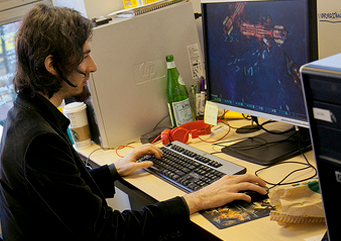
https://www.unifrog.org/student/subjects/school-subjects/computer-games-design-and-games-programming
The Work
You could be:
- planning and developing the different elements of a game: setting, plot, levels, characters, vehicles and objects and modes of play
- presenting ideas, using written documents and computer graphics or sketches, to the rest of the team
- working with artists and programmers to build a game prototype
- adapting and improving the game structure, functionality and user experience (known as UX) throughout the development
- changing the original ideas if they turn out to be technically difficult to put into practice
- working on the whole game or on one aspect of design, such as environment, characters or objects
- training testers to play the game to find any bugs (problems)
- writing the game's instructions
What Does it Take?
You need to have:
- imagination and creativity
- an analytical, logical approach
- excellent IT skills and knowledge of different platforms
- a wide knowledge of and a real enthusiasm for computer games, platforms and popular games culture
- good story telling and plot planning skills
- an understanding of design for user interfaces
- drawing and computer design skills
- excellent communication and presentation skills
- an awareness of target markets.
You need to be able to:
- adapt to ever-changing technology
- pay attention to detail
- be a good team worker
- work under pressure, accept criticism and meet deadlines.
Training
- Training is often on the job.
- You could take short training courses in languages such as C++ and artificial intelligence techniques.
If you are considering a career in IT, take a look at the Tech Future Careers website. You will find the video case studies of workers and general information on the industry useful. https://www.techskills.org/careers/
- BAFTA Young Games Designers is a competition with different categories for 10-14 and 15-18 year olds. You can write and illustrate your idea to enter the ‘Concept Award’ or make your own game to enter the ‘Games-Making Award’. See the BAFTA Young Game Developerwebsite for more details.
Study
Some courses focus more on games design and need creative thinkers; others focus on programming and the technical side, and would suit computer-literate students with a strong ability in maths. You'll take modules such as: digital graphics, 3D modelling, and drawing concept art for computer games.
Careers
Gaming is a fast-growing industry, but graduates in games design and programming are in high demand in companies involved in tech in general, not just ones involved in gaming. The future is particularly bright if you'd like to work in the UK - the UK games industry is now worth nearly £3 billion to the British economy and employs over 47,000 people across the country.
Watch this video
https://www.youtube.com/watch?v=gxJNpOvbBwM
Qualifications and grades
Level 2 (eg GCSEs; BTECs)
Universities view qualifications at this level as indicators of your academic potential, so strive to do your best in all core subjects. Universities will want you to have achieved a minimum of Grade 4 in English and Maths. However, some do ask for more, so be sure to check the entry requirements of the specific degree programmes you're interested in.
Level 3 (eg A-Levels, BTECs, IB, GPA, AP)
Universities will often require grade C or above in three subjects. Most degrees will require a good grade in Mathematics and some may also require Computer Science, ICT, Physics or a subject that demonstrates your design skills and creativity. For specific entry requirement grades and tariffs, check the degree programme's pages on the individual university's website. Also look for details of which subjects are accepted for the degree you may wish to study.
Group
Undergraduate Computer Games Design will invariably incorporate some element of group project work. For this reason, it's important to highlight projects you feel would support your application where you've worked well in a team. Maybe you played an important role in a group design project or ICT project; you could talk about the process you went through, the decisions you collectively made, you're part in that process, what issues you came up against, and how you overcame them. Specifically focus on how you worked well with others.
Individual
Being able to work on your own initiative is essential to show you can plan and organise your time effectively. At university, you will often be expected to carry out individual software development projects, from concept through to coding and debugging. If you've completed a school programming project already, it could provide great material to include in your application. Maybe you had to test a computer game for bugs.
There are many online tools and services that will help you practice software development and many of them are free - have a look for organised hackathons too, which will help you to hone your coding skills. Design and create your own games to perfect and develop your skills. This will also be a great start to a portfolio that you can use for your university application

Career of the Week 31 Firefighter
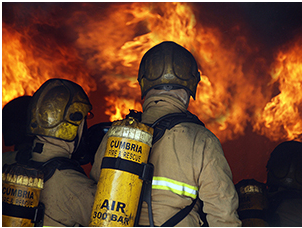
https://www.unifrog.org/student/careers/keywords/firefighter
What you'll do
You’ll work for a fire and rescue service run by your local area or county, overseen by a fire and rescue authority. Your work will be a mix of fire station duties, fire prevention and dealing with emergencies.
Every day will be different, but could include:
- inspecting and maintaining equipment
- carrying out practice drills and taking part in training
- rescuing people and animals from burning buildings and accident sites
- controlling and putting out fires
- dealing with bomb alerts and floods
- managing chemical or hazardous substance spills
- giving presentations to schools and community groups
- inspecting buildings to make sure they meet fire safety regulations
Skills required
You'll need:
- excellent communication skills
- the ability to operate a range of tools and equipment
- leadership and problem-solving skills
- ability with numbers, IT and report-writing
could you be a firefighter?
As a firefighter, you will be called upon to attend various emergency situations where your problem solving skills, initiative and team work skills will be vital to resolve issues quickly and calmly. Incidents vary from tackling fires and rescuing people from burning buildings to dealing with chemical spillages, flooding, Road Traffic Collisions (RTCs) etc.
A sensitive approach will be required when dealing with members of the public, who may be distressed and confused. Today's firefighter also works closely with the community to increase their level of awareness and to help prevent incidents from occurring in the first place.
Being able to communicate and engage effectively with schools, community groups, voluntary organisations and others is important, as is treating people with dignity and respect regardless of their background or culture.
The Attributes Required
There are certain personal attributes you will need to fulfill within your role as a firefighter. These include confidence, resilience, adaptability, ability to communicate effectively, integrity and have a commitment to diversity.
UK Entry Requirements
You must be 18, although you can apply slightly earlier if you'll be 18 by the time you get the job.
You'll need to pass a series of physical and written tests, a medical and an interview.
You can find out more about the selection process by getting a firefighter recruitment pack from https://www.cumbria.gov.uk/cumbriafire/workforcfrs/default.asp
You may need GCSEs (or equivalent) at grades 9 to 4 (A* to C) in English and maths, depending on which fire service you want to join.
Volunteering in a support role will give you an idea of the job, as well as access to internal vacancies.
Apprenticeship route in
Cumbria County Council run apprenticeships, for more information on the role and how to apply use the following links:
https://cumbria.gov.uk/cumbriafire/workforcfrs/wholetime/applying.asp
https://www.cumbria.gov.uk/elibrary/Content/Internet/535/612/43935134548.pdf

Career of the Week 30 Art Therapist

https://targetcareers.co.uk/923689-art-therapist
https://www.planitplus.net/JobProfiles/View/536
https://www.planitplus.net/JobProfiles/View/536#video
https://www.baat.org/Careers-Training
Art therapy aims to help patients overcome emotional, mental and behavioural difficulties by engaging with, and expressing themselves through, the artistic process.
Practitioners work with a wide range of patients who are affected by a variety of problems, including clinical or bipolar depression, phobias, anxiety and behavioural disorders.
The therapy aims to channel patients' energies into painting, sculpture and other forms of expression (including theatre and dance) and help them to understand and address their inner conflicts.
Art therapists play an active part in the sessions, guiding patients through the creative process and encouraging them to engage with their feelings and explore the thought processes behind them.
Art therapy aims to help patients overcome emotional, mental and behavioural difficulties by engaging with, and expressing themselves through, the artistic process.
Practitioners work with a wide range of patients who are affected by a variety of problems, including clinical or bipolar depression, phobias, anxiety and behavioural disorders.
The therapy aims to channel patients' energies into painting, sculpture and other forms of expression (including theatre and dance) and help them to understand and address their inner conflicts.
Art therapists play an active part in the sessions, guiding patients through the creative process and encouraging them to engage with their feelings and explore the thought processes behind them
Art therapists use art to help people of any age, who are experiencing physical, mental, emotional and social difficulties. They work with individuals or groups of clients in a safe, non-threatening environment. They do not judge the artistic standard of their clients’ work.
The Work
You could be:
- assessing the needs of clients and deciding on the best approach to treatment
- encouraging clients to express their feelings and emotions through painting, drawing or other art work
- supporting clients as they create visual images, which may release distressing feelings, help them understand their problems and move on positively
- working with clients one-to-one or in small groups using different materials such as paint, paper and clay
- showing clients with speech problems how to use art as a form of communication
- finding different ways to work with clients
- working with medical staff to help diagnose mental or emotional disorders and identify problems
- keeping up to date with paperwork, writing reports and case notes, making phone calls and sending letters to other organisations.
- working with a client's family or carers to help them to understand the client's problems.
Conditions
- You could work in hospitals, prisons, family centres, rehabilitation centres and additional support needs schools.
- Working hours are normally regular, but you may need to do some evening work.
Getting In
- You need a degree, and a postgraduate qualification in art therapy approved by the British Association of Art Therapists (BAAT).
- Queen Margaret University in Edinburgh offers an MSc in Art Psychotherapy (International). For entry you need a degree in visual arts. A degree in psychology, social work, nursing or teaching will be considered if supported by a substantial portfolio of artwork.
- Entry requirements for degree courses are 4-5 Highers, usually including Art and Design.
- You should ideally have one year's work experience or voluntary work in a health care, community or youth work setting.
- The BAAT run Introduction to Art Therapy courses. This one day course may help you decide if this is the career for you. They also run a one-week Art Therapy Foundation course.
- You will require a satisfactory criminal record check from Disclosure Scotland to show that you are suitable for this type of work. Contact Disclosure Scotland for details on the type you would need.
- When you complete the postgraduate course in art therapy you gain membership of the BAAT and UK state registration with the Health and Care Professions Council (HCPC). You need this to work in the National Health Service (NHS) or with a local authority.
- For some applicants this is a second career.
This is a small profession and entry is competitive. Most art therapists work in the NHS but some work for local authority social work departments or voluntary organisations. This is also an expanding area in mainstream education and is developing in the museums and galleries sector. Other art therapists work freelance and are paid fees rather than a regular salary. Work is often based on fixed-term projects.
What Does it Take?
You should have:
- a friendly, caring and sympathetic manner
- excellent observation skills
- patience and sensitivity
- an ability to put clients at ease and to encourage them
- excellent communication skills
- a willingness to persevere, as not all clients will respond quickly to treatment
- the ability to recognise your own strengths and weaknesses
- an understanding of client confidentiality.
Key skills for art therapists
- Excellent artistic abilities, creativity, imagination and enthusiasm
- Maturity, patience and a calm, respectful manner
- Ability to provide a trusting, open, kind-hearted atmosphere that encourages learning and participation
- A non-judgemental approach and ability to work with people from all walks of life
- Ability to deal with difficult, perhaps painful and embarrassing situations
- Excellent interpersonal, communication and listening skills
- A strong knowledge and understanding of the theory and practice of psychotherapy and the role art can play in treatment
- Business skills for private practice

Career of the Week 29 Health Visitor

https://www.planitplus.net/JobProfiles/View/295
https://www.prospects.ac.uk/job-profiles/health-visitor
Health visitors or public health nurses are qualified nurses who advise people in the community on how to prevent illness and remain healthy. They mostly deal with families with young children. They do not usually give clinical nursing care.
The Work
You could be:
- giving advice and support to the parents of babies and young children on subjects as feeding, diet or sleep
- checking the development of babies by regular visits and clinic sessions
- advising on mental health problems such as postnatal depression or agoraphobia
- advising individuals and families on problems such as violent relationships, bereavement or giving up smoking
- running "well woman" clinics or child care clinics for mothers and babies
- giving talks at health centres or schools – a key role is promoting health care in the community
- watching for environmental factors which affect health such as damp housing or poor hygiene
- working closely with GPs, midwives, social workers and housing officials.
Conditions
- You work from a medical practice, health centre, clinic or school.
- Most of the time you are travelling about visiting people at home or in schools, day centres or care homes.
- You usually work normal office hours but there may be some evening and weekend work.
- You may be able to work part time or job share.
- In rural areas you may also do the work of a midwife and district nurse.
Getting In
- You must first qualify as a registered nurse
- After qualifying as a registered nurse you must register with the Nursing and Midwifery Council (NMC).
- After gaining around two years' experience you can then apply for an approved health visitor training programme.
What Does it Take?
You should be:
- able to work alone
- able to communicate with people from a wide range of backgrounds and cultures
- observant
- a good listener
- confident
- a good motivator to help people change their lifestyles
- patient and tactful.
You should have good judgement.
Training
- You would normally be sponsored by your employer while you train.
- Courses last between 32-52 weeks, half in university and half doing supervised work in the community.
- To continue working as a nurse you must renew your registration with the NMC every three years.
Video
Salary
- Health visitors usually start at Band 6 of the NHS Agenda for Change (AfC) pay scale. This begins with salaries of £30,401 and rises to £37,267.
- Team managers and health visitor specialists can earn up to £43,772 on Band 7 of the scale.
What to expect
- You should expect to travel during the day within the local area to carry out home visits to parents and children. You'll also need to attend clinics and support groups in regional surgeries and centres.
- There is no uniform but there is a dress code. You'll typically be expected to wear smart, appropriate clothes and they'll need to be comfortable for when you're examining children.
- Working with families and young children, including those at risk, means that you may find the job stressful and challenging on occasions. Risk to personal safety may be an issue, depending on the role and situation.
- Posts are available throughout the UK and the amount of vacancies is expected to continue to rise.
- It's unlikely that you'll need to be away from home overnight and overseas work or travel is uncommon.

Career of the Week 28 Interior Design

https://www.goconstruct.org/construction-careers/what-jobs-are-right-for-me/interior-designer/
What does an interior designer do?
As an interior designer, you will help to curate or renovate the inside spaces of buildings, so they are functional and aesthetically pleasing to your client. You may be recommending wall colours, lighting, fittings, furniture and fabric to enhance a space. Alternatively, you could oversee structural design elements within a room, such as in- built shelving, stairs, ceiling designs and more.
The job role of an interior designer involves the following duties:
- Meeting clients to understand their requirements and budget
- Surveying, measuring and analysing how the project space will be used
- Considering colour schemes, materials and fabrics, fittings, decorations, furniture, and environment
- Developing sketches and mood boards for your client to approve
- Preparing detailed drawings and designs to suit clients’ needs, usually on a computer
- Sourcing suppliers of fittings, furniture and interior decorations and materials
- Working with fitters, electricians, painters and decorators, architects and other construction professionals to complete a project.
Skills
Additional skills which may benefit anyone considering a job as interior designer include:
- Creative design skills
- Understanding of building and construction
- Excellent attention to detail
- Verbal communication skills
- Ability to work well under pressure
- Logical thinking skills
- Ability to use your initiative.
University
To become an interior designer you could complete a relevant foundation degree, higher national diploma (HND) or undergraduate degree, such as:
- Interior design
- Interior architecture
- Spatial design
- 3D design
- Art and design.

Career of the Week 27 Hotel Manager

https://www.planitplus.net/JobProfiles/View/112
https://targetcareers.co.uk/924075-hotel-manager
https://www.ucas.com/explore/career-page/7.1/1221?assessmentId=false
A hotel general manager is responsible for organising all the work which goes on in a hotel: reception, food service, bar service, room service, booking, budgeting, marketing and staff.
The Work
You could be:
- making sure all guests receive a high quality of service
- planning marketing campaigns
- planning budgets, setting sales targets and managing accounts
- analysing sales figures and producing reports
- recruiting, training and supervising staff
- meeting and greeting guests
- dealing with customers’ complaints and other problems
- organising building maintenance
- making sure that the hotel meets health, safety and security regulations and licensing laws.
In a small hotel you would look after the following areas yourself:
- housekeeping
- food and drink
- restaurant
- front office
- conferences and banqueting.
In a large hotel you would have departmental managers for these different functions.
Conditions
- It is a demanding job, both physically and mentally.
- You will probably work shifts including evenings and weekends and hours can be long.
- You may have to take your holidays at certain times, when it's off-peak.
- You might be on call when off duty.
- You might live in or near the hotel.
- You might spend nights away from home.
Key skills for hotel managers
Reliability and stamina are essential in hotel management. You will also need excellent numerical, verbal and written communication skills. Numeracy is particularly important for finance-related and office-based roles, while good interpersonal skills and customer service are vital for roles involving contact with clients. Knowledge of foreign languages can be an advantage.
Hard skills
Hard skills are specific, learnable, measurable, often industry or occupation-specific abilities related to a position.
- Auditing
- Key Performance Indicators (KPIs)
- Cost Control
- Restaurant Operation
- Budgeting
Soft skills
Soft skills can be self-taught and usually do not necessitate a certain completed level of education.
- Management
- Customer Service
- Communications
- Sales
- Leadership
Typical employers of hotel managers
- Hotel chains
- Independent hotels and motels
- Residential clubs
- Resorts
- Inns
- Hotel and leisure groups
Qualifications and training required
- There are routes into this career for both university graduates and school leavers.
- A hotel/catering management or hospitality qualification can be advantageous. Graduates without relevant degrees could obtain a postgraduate diploma in hotel management or build up an extensive amount of experience. A management, languages, leisure, business studies, travel or tourism degree may also be helpful.
- Relevant work experience is essential for entry into the profession; this can include hotel, catering, retailing, waitressing or bar work.

Career of the week 26 Cyber Security Specialist

https://targetcareers.co.uk/924171-cyber-security-specialist
Any computer connected to the internet is vulnerable to cyberattacks. Cyber security, or IT security, is the technique used to protect computers and networks from criminal intrusion. Specialists in cyber security are among the most sought-after professionals in the tech sector as businesses and governments seek to fight off an increasingly daring and ruthless cohort of global cyber criminals and hackers. Skilled and dedicated security specialists work in this field that demands a mix of artistry and technical expertise. They need to be constantly one step ahead of the hackers and organised criminals behind a new crime wave.
There is increased potential for career progression, especially in larger organisations and financial service providers. There is also scope for experienced security professionals to go into business for themselves as consultants.
Work Activities
Duties include:
- seeking to build in security during the development stages of software systems, networks and data centres
- looking for vulnerabilities and risks in hardware and software
- finding the best way to secure the IT infrastructure of an organisation
- building firewalls into network infrastructures
- constantly monitoring for attacks and intrusions
- when the cyber security specialist finds a potential threat or attempted breach, closing off the security vulnerability
- identifying the perpetrator and liaising with the police if necessary
Personal Qualities and Skills
- Strong IT skills and knowledge including hardware, software and networks
- Meticulous attention to detail
- Ability to use logic and reasoning to identify the strengths and weaknesses of IT systems
- A forensic approach to challenges
- A deep understanding of how hackers work and ability to keep up with the fast pace of change in the criminal cyber-underworld
- Ability to seek out vulnerabilities in IT infrastructures
Typical employers of cyber security specialists
- Network providers
- The government
- Banks
- Schools and universities
- Airlines
- Any large organisation with a database
- Security consultancy firms
- Qualifications and training required
- Both university graduates and school leavers can enter the cyber security profession. Graduates tend to need a degree related to computer science or in a STEM subject.
- A number of employers run apprenticeships in cyber security, some of which involve studying towards a degree at the same time as working.
For further information, look at ucas explore:

Career of the week 25 Social Worker

https://careers.startprofile.com/page/occupation?SOC=2442
Brief description
Social workers provide information, advice and support to those who are socially excluded or are experiencing crisis; they protect the welfare of vulnerable groups including children, young people, people with disabilities, elderly people and people who are mentally or physically ill, and they may specialise in specific areas of work.
Entry requirements
Only graduates can become social workers. To become a social worker you will need a qualification that is approved by the Health and Care Professions Council (HCPC). This means either doing a BA undergraduate degree in social work or, if your first degree is in a different subject, completing a postgraduate qualification. The HCPC publishes a list of accredited courses on its website.
Graduates who have an undergraduate degree in any subject other than social work are eligible for work-based postgraduate programes, such as:
- Frontline
- Step Up to Social Work
- Think Ahead
On these programes you will work towards postgraduate qualifications while gaining practical experience in social work. Paid or voluntary experience in social work and care is advantageous when applying for these programes.
Common tasks
- Liaises with other health and social care professionals and agencies to identify those in need and at risk within the local community.
- Interviews individuals and groups to assess and review the nature and extent of difficulties;
- Undertakes and writes up assessments to specified standards;
- Arranges for further counselling or assistance in the form of financial or material help;
- Organises support and develops care plans to address service users needs;
- Keeps case records, prepares reports and participates in team meetings;
- Gives evidence in court;
- Participates in training and supervision.
Key skills for social workers
- Commitment
- Patience
- Flexibility
- Able to cope with traumatic situations
- Problem solving
- Analytical skills
Watch this video:

Career of the week 24 Surveyor

https://www.goconstruct.org/construction-careers/what-jobs-are-right-for-me/surveyor/#case-study
https://careers.startprofile.com/page/occupation?SOC=2434
https://targetcareers.co.uk/923747-building-surveyor
Activities
Chartered surveyors conduct surveys related to the measurement, management, valuation and development of land, natural resources, buildings, other types of property, and infrastructure such as harbours, roads and railway lines.
Entry requirements
Most surveyors have relevant degrees in subjects such as construction, building and surveying.
Entrants must also have successfully completed a probationary training period and professional assessment.
Common tasks
- property and land surveys/valuations
- liaison with other professionals, such as estate agents
- writing reports (often technical)
- advising clients
- providing legal advice and evidence for court cases
- overseeing building work
Personal Qualities and Skills
- Responsibility
- Attention to detail
- Good mathematical skills
- Organisational skills and an eye for detail
- Willingness to work outside in all conditions
- Interest in and firm knowledge of the built environment, including building regulations and health and safety legislation
- An understanding of how their recommendations will affect a construction project's profitability
- Relationship-building skills and a strong understanding of good customer service
- IT skills, including knowledge of industry-specific software
- Be analytically minded, with strong problem-solving skills
- Interpersonal and communication skills, both written and oral
- Excellent project and time management skills
- Teamworking skills
Also: a full driving licence is usually needed.
Gaining work experience in building surveying – or in a related construction, property or planning role – as a pupil can enhance your graduate job application. Many of the typical employers of building surveyors (see above) offer formal summer internships and industrial year placements.

Career of the week 23 Radiographer

https://app.startprofile.com/role/1906
What's It All About?
There are two types of radiographers - diagnostic radiographers and therapeutic radiographers.
Diagnostic radiographers deal with patients suffering from various injuries and illnesses, producing images to help diagnose an injury or disease.
Therapeutic radiographers plan and deliver radiation treatment programmes to patients who have cancer.
What Would I Do?
Diagnostic radiographers use a range of equipment including:
- X-rays: looking through tissue to examine bones, cavities and foreign objects
- Fluoroscopy: live X-ray motion images of the digestive system
- Angiography: X-rays of blood vessels
- Computed Tomography (CT): X-ray images of cross-sections of the body
- Magnetic Resonance Imaging (MRI): 2D or 3D map of tissue types in the body
- Ultrasound: producing images using high frequency sound
- Nuclear Medicine (NM): radioisotopes show how the body and organs function
They must then interpret these images to diagnose the patient's condition.
The work of a therapeutic radiographer would usually include:
- Using specialist equipment to plan treatments
- Planning dosage levels
- Discussing possible treatments
- Understanding the side effects of different treatment programmes
- Explaining and agreeing treatments with patients
- Delivering doses of radiation to the tumour
- Monitoring patients throughout their treatment
https://targetcareers.co.uk/
Personal Qualities and Skills
Key skills for diagnostic radiographers
- Good at communicating with people
- Enjoys working in a team
- Caring manner, calm approach and able to reassure nervous patients
- Enjoys working with technology and learning about new developments
- Attention to detail and accuracy.
Key skills for therapeutic radiographers
- a strong interest and ability in science, specifically biology, anatomy, physiology and physics
- excellent communication skills
- the ability to develop relationships with frightened, fragile and vulnerable patients.
- the ability to adopt an appropriate manner with patients who may be very ill
- emotional stability and strength to cope with patients who may be terminally ill
- IT and technical skills
- good teamworking skills
- the ability to adapt to changes and new techniques in the industry
Qualifications and training required
Before you can be called a radiographer you must hold a relevant degree as 'radiographer' is a protected title. Radiographers are regulated by the Health and Care Professions Council (HCPC). Entry into the profession is via a full-time three- or four-year degree course, and there's a two-year accelerated option for postgraduates with a relevant first degree. The Society & College of Radiographers offers membership, support and ongoing learning opportunities to anyone working in clinical imaging across all levels, including student radiographer.

Career of the week 22 Bricklayer

https://app.startprofile.com/role/451
What's It All About?
Bricklayers lay bricks, pre-cut stone, concrete blocks and other types of building blocks in mortar to construct and repair walls, foundations, partitions, arches and other structures.
Their work can range from a house extension to a major stadium project!
What Would I Do?
Being a bricklayer involves:
- Working from plans and specifications
- Sealing foundations with damp-resistant materials
- Spreading layers of mortar to serve as a base and binder for bricks, removing excess mortar, and checking vertical and horizontal alignment
- Using various tools and brick-cutting machines to cut and shape bricks
- Constructing arches and ornamental brickwork
- Repairing and maintaining clay bricks, cement blocks / bricks and related structures
Similar roles to explore:
How to become a bricklayer
There are several routes to becoming a bricklayer. You can gain the qualifications you need by doing a college course, an apprenticeship or on the job training.
You should explore these routes to find which one is right for you. Although some options will list qualification requirements, many employers are more interested in people who are enthusiastic, willing to learn and able to follow instructions.
College
Your local college or training provider may offer courses such as a Level 1 Certificate in Construction Skills, Level 2 Diploma in Bricklaying or Level 2 Diploma in Trowel Occupations.
You’ll need:
- 2 or fewer GCSEs at grades 3 to 1 (D to G), or equivalent (level 1 course)
- 2 or more GCSEs at grades 9 to 3 (A* to D), or equivalent (level 2 course)
Apprenticeship
https://app.startprofile.com/role/451
What's It All About?
Bricklayers lay bricks, pre-cut stone, concrete blocks and other types of building blocks in mortar to construct and repair walls, foundations, partitions, arches and other structures.
Their work can range from a house extension to a major stadium project!
What Would I Do?
Being a bricklayer involves:
- Working from plans and specifications
- Sealing foundations with damp-resistant materials
- Spreading layers of mortar to serve as a base and binder for bricks, removing excess mortar, and checking vertical and horizontal alignment
- Using various tools and brick-cutting machines to cut and shape bricks
- Constructing arches and ornamental brickwork
- Repairing and maintaining clay bricks, cement blocks / bricks and related structures
Similar roles to explore:
How to become a bricklayer
There are several routes to becoming a bricklayer. You can gain the qualifications you need by doing a college course, an apprenticeship or on the job training.
You should explore these routes to find which one is right for you. Although some options will list qualification requirements, many employers are more interested in people who are enthusiastic, willing to learn and able to follow instructions.
College
Your local college or training provider may offer courses such as a Level 1 Certificate in Construction Skills, Level 2 Diploma in Bricklaying or Level 2 Diploma in Trowel Occupations.
You’ll need:
- 2 or fewer GCSEs at grades 3 to 1 (D to G), or equivalent (level 1 course)
- 2 or more GCSEs at grades 9 to 3 (A* to D), or equivalent (level 2 course)
Apprenticeship
An apprenticeship with a construction firm is a good way into the industry.
Apprenticeships are open to anyone over the age of 16. As an apprentice, you will be fully employed by your company and expected to work a minimum of 30 hours a week. Your time will be split between on-the-job experience and a college or training provider.
An intermediate bricklaying apprenticeship offers two years of on-the-job training and time with a training provider. For this, you’ll need GCSEs (including English and maths), or equivalent qualifications.
Skills
Additional skills which may benefit anyone considering a job as a bricklayer include:
- Knowledge of building and construction
- Be thorough and pay attention to detail
- Ability to work well with others
- Be flexible and open to change
- Patience and the ability to remain calm in stressful situations
- Ambition and a desire to succeed
- Ability to work well with your hands
- Able to carry out basic tasks on a computer or hand-held device
https://www.goconstruct.org/construction-careers/what-jobs-are-right-for-me/bricklayer/
An apprenticeship with a construction firm is a good way into the industry.
Apprenticeships are open to anyone over the age of 16. As an apprentice, you will be fully employed by your company and expected to work a minimum of 30 hours a week. Your time will be split between on-the-job experience and a college or training provider.
An intermediate bricklaying apprenticeship offers two years of on-the-job training and time with a training provider. For this, you’ll need GCSEs (including English and maths), or equivalent qualifications.
Skills
Additional skills which may benefit anyone considering a job as a bricklayer include:
- Knowledge of building and construction
- Be thorough and pay attention to detail
- Ability to work well with others
- Be flexible and open to change
- Patience and the ability to remain calm in stressful situations
- Ambition and a desire to succeed
- Ability to work well with your hands
- Able to carry out basic tasks on a computer or hand-held device
https://www.goconstruct.org/construction-careers/what-jobs-are-right-for-me/bricklayer/

Career of the week 21 Orthodontist

https://app.startprofile.com/role/471
What's It All About?
Orthodontists specialise in the growth of the teeth, jaws and face.
The treatment they offer can straighten irregular or uneven teeth and correct abnormalities of the jaw, improving appearance and making it easier to eat.
Most of an orthodontist's patients are children and young people.
What Would I Do?
Being an orthodontist involves:
- Examining a patient's mouth and teeth
- Taking photographs, x-rays and impressions
- Explaining the options for treatment to a patient and recommending the best treatment
- Fitting braces
- Extracting teeth
- Explaining to a patient how they should care for their teeth during and after the treatment
- Checking on a patient's progress and making any necessary adjustments to braces
Qualification required – Degree in Dentistry
Key skills
- Communication
- Patience
- A thorough and methodical approach
- Ability to work long hours, often under pressure
- Good ethical grounding
- Teamwork skills
See also Dentist https://targetcareers.co.uk/923929-dentist

Week 20 Health and Safety Officer

https://app.startprofile.com/role/878
What's It All About?
Health and safety officers work to make sure that employers comply with all aspects of health and safety, so that risks in the workplace are properly controlled.
This can involve completing audits, writing risk-assessment reports, training staff, reading and implementing the latest health and safety laws and generally ensuring the safety of all employees, customers and guests within any working environment.
Their work is vital to all industry sectors and covers a variety of sites, such as; offices, factories, manufacturing plants, food retailers and construction sites, engineering plants and airports to name but a few.
Health and safety officers need to be aware of the current legislation surrounding different working areas, for example the guidelines for working on a construction site will be different to those for working in an office.
Officers can inspect factories, offices, hospitals, food retailers, farms, construction sites and even offshore oil and gas installations.
Some health and safety officers specialise in a particular area of work, but general tasks include:
- Visiting workplaces to investigate accidents, causes of ill-health and complaints
- Enforcing the law in workplaces
- Examining ways to improve health and safety standards
- Working with managers and employers to provide a safe working environment
- Developing health and safety programmes and strategies
- Keeping up-to-date with the law and technical knowledge
Check out this video
https://app.startprofile.com/role/878/related-mediaPersonal Qualities and Skills
Key skills for health and safety inspectors
Employers seek graduates who are calm, assertive and resilient, with excellent communication, teamworking and interpersonal skills. Candidates must be capable of acquiring and retaining detailed legal, technical and commercial information.
They should also have strong analytical, problem-solving and organisational skills and be physically fit.
Qualifications and training required
To become a health and safety inspector it is normally necessary to have a degree. Inspectors begin as trainees on a vocational three-year training programme with the Health and Safety Executive (HSE), during which time a diploma in occupational health and safety is obtained. To be accepted onto the trainee programme, an appropriate degree such as environmental health, science or engineering is preferred. Postgraduate qualification and/or work experience may be required for some specialist positions.
https://targetcareers.co.uk/924055-health-and-safety-inspector

Week 19 Event Organiser

https://app.startprofile.com/role/1120
What's It All About?
Event organisers play a huge part in the organisation of a range of events such as exhibitions, fairs, festivals, conferences and fundraising and social events.
They see events through from conception to completion so the job can be very varied!
What Would I Do?Being an event organiser involves:
- Choosing and booking a suitable venue for the event
- Sending out publicity for the event
- Booking accommodation for people involved in the event
- Organising the catering, reception facilities and specialist equipment for each event
- Checking all details with venue staff to make sure that the event runs smoothly
- Making sure that the event complies with health and safety regulations
- Overseeing the removal of the event
Check out this video
https://app.startprofile.com/role/1120/related-media
https://targetcareers.co.uk/923995-exhibition-organiser
Personal Qualities and Skills
Key skills for exhibition organisers
IT, sales, financial, marketing and PR skills and experience are usually beneficial. Would-be exhibition organisers should have plenty of energy, the ability to cope with pressure and meet deadlines, excellent interpersonal skills, meticulous attention to detail, effective time management and organisational abilities.
Qualifications and training required
There are routes into exhibition organising for both university graduates and school leavers.
Although any degree discipline is technically acceptable, there is strong competition for vacancies and employers may favour those possessing a management, marketing, events management or hospitality degree.
It is also possible to start as an exhibition assistant and work up to being an exhibition organiser.

Week 18 Psychologist

https://app.startprofile.com/role/1397
What's It All About?
Psychologists study the behaviour of people and how they think.
They use scientific methods to try to understand why people act and behave as they do and grasp the thoughts and feelings behind those actions.
Psychologists specialise in one of six main fields; clinical psychology, educational psychology, forensic psychology, health psychology, occupational psychology and sports psychology.
What Would I Do?Being a psychologist involves:
- Help people to overcome medical conditions such as stress or depression
- Work with young people who need help with bullying or family issues
- Study the reasons behind criminal behaviour
- Educate people into making lifestyle changes, such as stopping smoking or losing weight
- Help sports people to improve their performance
Check out this video
https://app.startprofile.com/role/1397/related-media
Entry requirements
To enter a counselling psychology training programme, you will need either an undergraduate or Master’s degree that is accredited by the British Psychological Society (BPS) and leads to graduate membership. As well as this, you will need some experience working with adults or children.
To qualify, counselling psychologists complete a Health and Care Professions Council-accredited practitioner doctoral degree, which require at least 450 hours of supervised counselling practice over three or more years. These hours should be undertaken in a variety of settings. Trainees are also required to receive personal therapy during training.
https://targetcareers.co.uk/923723-psychotherapist
Related role: Psychotherapist
Psychotherapists work with clients who are affected by difficulties such as depression, phobias, stress, anxiety, physical or psychosomatic disorders and behavioural problems.
Work Activities
Activities may include:
- performing therapy sessions in a controlled environment
- using verbal interaction to explore behaviour, attitudes and emotions
- carrying out hypno-psychotherapy
- helping clients to understand and address their inner conflicts.
Therapy with young children often focuses on communication through undirected play with art materials and toys. Treatment can take a year or more, depending on the nature of the problem. Child psychotherapists work in child and adolescent mental health services (CAMHS) teams based in the community.
Personal Qualities and Skills
Key skills for psychotherapists
- Resilient listening skills
- Observation
- Sensitivity
- Sincerity
- Discretion
- Empathy and rapport
- Positive outlook
- Excellent communication skills

Week 17 Dentist

https://app.startprofile.com/role/441
What's It All About?
Dentists diagnose and treat a range of problems that affect the mouth, teeth and gums. They also advise people on how to care for their mouth and teeth, to prevent any problems arising. They are helped in the surgery by dental nurses.
Many dentists now only treat 'private' patients so there is a real shortage of National Health Service (NHS) dentists, who are in demand by many people.
What Would I Do?
Being a dentist involves:
- Checking a patient's mouth, teeth and gums for signs of problems
- Taking x-rays
- Drilling away decayed parts of teeth and filling cavities
- Fitting crowns, bridges and dentures to replace teeth or parts of teeth
- Scaling and polishing teeth to prevent them from further decay
General dental care
Most dentists work as general dental practitioners (GDPs), usually in a high street practice, providing dental care to the general public. You can largely choose where you work but you may need to be flexible with your working hours.
You may practise either under the NHS or privately, or both. You could also work part time in hospitals and some go into clinical teaching.
If you decide to train as a dentist, as well as meeting academic entry requirements, you’ll need a willingness to learn about human anatomy and oral disease. All members of the dental team are now required to learn this to an extent. However, a dentist’s knowledge is required to be especially thorough. Throughout your career, scientific knowledge will need to be updated as methods and theories of disease change.
You’ll need to be able to put patients at ease, gain their confidence and deal sympathetically with their fears. You will hold a position of trust, so you will need to behave with integrity, tact and understanding. You will need to be able to communicate well with everyone from toddlers to the elderly.Check out this video
https://app.startprofile.com/role/441/related-media
https://www.healthcareers.nhs.uk/explore-roles/dental-team/roles-dental-team/dentist
Entry requirements
Becoming a dentist involves at least five years’ study at dental school, followed by one or two years of supervised practice. Most entrants will require three As at A-level, although one year pre-dental courses are offered by some dental schools.
https://www.healthcareers.nhs.uk/explore-roles/dental-team/studying-career-dental-team

Week 16 Nurse

https://app.startprofile.com/role/462
What's It All About?
Nurses work in the health sector and are trained to care for ill and injured people, or those who are suffering due to age or disability.
They can care for adults and children, and are also responsible for providing advice and support to a patient's family.
What Would I Do?
Being a nurse can involve:
- Checking a patient's medical history and preparing a care plan
- Checking a patient's blood pressure and temperature
- Observing and recording changes in a patient's condition
- Giving medication and changing dressings
- Assisting surgeons and other healthcare professionals by preparing and passing instruments in an operating theatre
- Caring for patients in the recovery room
- Running clinics for people with conditions such as asthma and diabetes
- Caring for patients in their homes
Check out these videos:
https://app.startprofile.com/role/462/related-media
Information about nursing degrees:
https://targetcareers.co.uk/923581-nurse
Personal Qualities and Skills
- Good health and fitness
- Caring and compassionate nature
- Excellent teamwork and people skills
- Observational skills
- Ability to use initiative
- Ability to deal with emotionally charged and pressured situations
- Verbal and written communication skills
- Resilience
- Stamina
Qualifications and training required
- The main route into qualifying as a nurse is to take a nursing degreein one of the four nursing specialisms: adult nursing, children's nursing, learning disability nursing or mental health nursing. Some degree courses cover two of these fields, and are known as 'dual field' degrees. Most nursing degree courses are three years long, Nursing degree courses provide a mix of formal teaching and practical experience.
- You apply for full-time undergraduate nursing degrees through UCAS. Application criteria vary but you are likely to need at least 2 (more often 3) A levels or equivalent qualifications, plus a minimum of 5 GCSEs at grade C (equivalent to grade 4) including English, maths and a science (usually biology).
- Nursing degree apprenticeshipsare now offered by a small number of NHS organisations. They are similar to nursing degrees in that they involve a mix of academic study and placements, but they are employer-led rather than being led by universities. Nursing degree apprentices are released by their employers to undertake academic study at degree level on a part-time basis, and also train through a series of practice placements. Level 3 qualifications (that is, A level or equivalent) are usually required, as the apprenticeship is at degree level. You can look for nursing degree apprenticeships on the NHS jobs website or the government's apprenticeship search.
- All nurses working in the UK must be registered with the Nursing and Midwifery Council (NMC). When students complete their nursing degrees, their universities pass on their details to the NMC, which then gets in touch to let them know how to create an online account and apply for registration. There is a fee of £120 for this. Nurses are required to renew their registration and pay the registration fee each year, and must revalidate their registration every three years. In order to revalidate registration, nurses must have completed a minimum of 35 hours continuing professional development (CPD) and 450 hours registered practice over three years.
- Nurse First, a pilot two-year fast-track programme for graduates who want to enter nursing, has recently been launched by NHS England, and combines hands-on experience and training with an educational course. The scheme's initial focus is training mental health and learning disability nurses.
- Any experience of caring for or working with people (eg in a care home or hospice) can be helpful.

Week 15 Solicitor

https://app.startprofile.com/world-of-work/explore/industry/18
https://app.startprofile.com/role/1012
What's It All About?
A lawyer is 'a person learned in the law.' * This means that the term 'lawyer' has a wide meaning and refers to any individual who practises law.
The term 'lawyer' can refer to the following job roles:
- Barrister
- Paralegal
- Solicitor
If you want to take a closer look at any of these job roles, you can find them within this Job Bank.
*Definition taken from Black's Law Dictionary.
Solicitors work in the community justice sector and provide people - known as clients - with specialist legal advice and acts for them on all kinds of personal and business matters.
A solicitor's clients could be members of the public, businesses, voluntary bodies, charities and government departments.
The legal advice that a solicitor offers needs to be thoroughly researched and precise so they need to have a knowledge of various types of legislation.
What Would I Do?
Being a solicitor involves:
- Advising clients about legal matters
- Representing clients in court
- Researching similar cases in order to guide your current work
- Dealing with paperwork, writing letters, preparing and drafting contracts
- Keeping financial records
- Attending meetings and negotiations
Check out this video:
https://app.startprofile.com/role/1012/related-media
Personal Qualities and Skills
Key skills for solicitors
- motivation
- organisational skills
- commercial awareness
- good interpersonal skills
- written and oral communication skills
- analytical skills
- Qualifications and training required
- The main route to qualifying as a solicitor is still via a (law or non-law) university degree followed by a vocational, postgraduate course known as the legal practice course (LPC). Graduates from any academic background can train as a solicitor, but should have an excellent record of academic achievement, including good A level results. Graduates with a non-law degree must first pass a conversion course known as the graduate diploma in law (GDL) or common professional examination (CPE) before taking the LPC.
- Following qualification, it is necessary to complete a two-year training contract or 'period of recognised training'. At all stages early applications are essential: some firms arrange training contracts up to two years in advance.
- It is possible to become a solicitor without a degree by qualifying as a registered CILEx (the Chartered Institute of Legal Executives) fellow. Qualification requires passing the CILEx exams and undertaking a period of employment.
https://targetcareers.co.uk/923843-solicitor

Week 14 Toxicologist

https://app.startprofile.com/role/2043
What's It All About?
Toxicologist focus their studies on the harmful effects of chemicals, researching how they occur and how they can be avoided or minimised.
Chemicals can harm humans, animals, plants and the environment. Therefore toxicologists dedicate their time to a number of these effects, such as in the food we eat and the water we drink are free from contaminants, the air we breathe is pollutant free and the medicines we take are safe.
Their work combines a number of scientific disciplines including biology, chemistry, molecular biology, immunology and statistics, and play a part in protecting the environment.
This role could be part of an exciting STEM (Science, Technology, Engineering and Maths) career.
Toxicologists have to be good at science. This is because they use their knowledge of chemicals to help protect the environment.
Science helps you to discover how scientific ideas contribute to technological change - affecting industry, business and everyday life.
What Would I Do?
There are a number of different types of toxicologists including:
- Industrial toxicologists: involved in developing products such as pharmaceuticals, cosmetics, food and drink. They test products during and after manufacture to ensure they are effective and safe.
- Pharmaceutical toxicologists: test new drugs before they are used on patients. Carrying out a number of experiments they can judge the benefits and risks of the drugs.
- Academic toxicologists: combine lecturing with research in the laboratory. They act as advisers to the industry and the government of the safety of chemicals.
- Clinical toxicologists: working in hospitals, diagnosing and treating patients, they specialise in the effects of drugs and chemicals on humans.
- Forensic toxicologists: provide evidence and advice within the justice systems about the legal aspects of poisons and drugs. They carry out lab investigations in cases where chemicals are suspected to have contributed to a death.
- Ecotoxicologists: study the effects of chemicals on the environment.
- Regular toxicologists: investigate products and advise on whether they can be licensed or sold. They can also set limits for exposure to chemicals in food, products and the environment.
- Occupational toxicologists: evaluate the effects of chemicals on human health in the workplace, advising how they can be handled safely. When chemicals are accidentally released into the environment they must provided their professional knowledge to the situation.
Personal Qualities and Skills
https://targetcareers.co.uk/924157-toxicologist
Key skills for toxicologists
- A logical and independent mind
- Meticulous attention to detail
- Excellent written and oral communication skills
- Good teamworking abilities
Qualifications
Qualifications and training required
You can only become a toxicologist if you have a degree in an appropriate scientific subject, such as biology, biochemistry, chemistry, life sciences or medical sciences. A postgraduate qualification in toxicology or forensic science can be beneficial.

Week 13 Plumber

https://app.startprofile.com/role/479
What's It All About?
A plumber works to provide us with hot and cold water, sanitation in our homes and at work, and also heating systems.
It is a plumber's job to install, service and repair plumbing systems, so the day-to-day tasks carried out can be very varied.
For example, a plumber could be called out to fix a central heating system in a family home, or be responsible for making sure a public building gets clean drinking water.
What Would I Do?
Being a plumber involves:
- Installing and repairing heating systems, water supplies and drainage
- Servicing gas and oil-fired central heating systems, boilers and radiators
- Installing and repairing domestic appliances like showers and washing machines
- Fitting rainwater, soil and drainage pipes
Watch this video:
https://app.startprofile.com/role/479/related-media
How to become a plumber
There are several routes to becoming a plumber. You can gain the qualifications you need by doing a college course or an apprenticeship. You should explore these routes to find out which is the right one for you. Although some of these options will list qualification requirements many employers are more interested in people who are enthusiastic, willing to learn and can follow instructions.
College/training provider
There is strong competition for places on plumbing courses. You could do a Level 2 or 3 Diploma in Plumbing and Domestic Heating. Afterwards, you could apply for a trainee position with a plumbing company.
You’ll need:
- 2 or more GCSEs (or equivalent) at grades 9 to 3 (A* to D) (level 2 course)
- 4 - 5 GCSEs (or equivalent) at grades 9 to 4 (A* to C) (level 3 course).
Apprenticeship
An apprenticeship with a construction firm is a good way into the industry. Apprenticeships are open to anyone over the age of 16. As an apprentice, you will be fully employed by your company and expected to work a minimum of 30 hours a week. Your time will be split between on-the-job experience and a college or training provider.
An intermediate plumbing apprenticeship takes two to four years to complete.
You’ll need:
- Up to 5 GCSEs (or equivalent), including English and maths (intermediate apprenticeship)
- 5 GCSEs (or equivalent) at grades 9 to 4 (A* to C), including English and maths (advanced apprenticeship).
https://www.goconstruct.org/construction-careers/what-jobs-are-right-for-me/plumber/
Personal Qualities and Skills
Key skills for plumbers
- Practical skills
- Be able to work carefully and follow technical drawings and plans
- Be physically fit as the work involves a lot of bending, kneeling and working in confined conditions
- Domestic plumbers need good people skills as they meet customers in their own homes
- Be comfortable working at heights
- Be aware of the importance of health and safety in the industry
https://targetcareers.co.uk/924459-plumber

Week Week 12 Civil Engineer

https://app.startprofile.com/role/926
https://www.goconstruct.org/construction-careers/what-jobs-are-right-for-me/civil-engineer/
What's It All About?
Civil engineering is all about improving and protecting the environment in which we all live.
A civil engineer's job is to see a project through, from beginning to end. Projects can include development, maintenance and construction of bridges, roads, railways, airports, dams, or sea and river defences.
Civil engineers can either be consulting engineers who advise on projects and design them or contracting engineers who make the plans real.
This role could be part of an exciting STEM (Science, Technology, Engineering and Maths) career.
Civil engineers have to be good at science. This is because engineering is closely linked to physics.
Science helps you to discover how scientific ideas contribute to technological change - affecting industry, business and everyday life.
What Would I Do?
Being a civil engineer can involve:
- Carrying out site investigations
- Developing designs
- Putting together proposals
- Reviewing project drawings
- Making sure that a project is completed on time and within budget
- Dealing with clients, architects and sub-contractors
- Making sure work is completed to a quality standard
Watch this video:
https://app.startprofile.com/role/926/related-media
Key skills for civil engineers
Employers seek graduates who are commercially aware and capable of working well within a team environment. Other key skills include:
- sound mathematical, scientific and IT skills
- the ability to think methodically and to manage projects
- problem-solving skills
- ability to work to deadlines and within budgets
- ability to maintain an overview of entire projects while continuing to attend to detailed technicalities
- excellent verbal and written communication skills
- negotiating, supervisory and leadership skills
How to become a civil engineer
There are several routes to becoming a civil engineer. You can gain the qualifications you need by doing a university or college course or you could apply for a civil engineering apprenticeship. If you already have relevant skills or experience you may be able to apply directly to an employer or train on the job. You should explore these routes to find out which is the right one for you.
University
You can become a civil engineer by enrolling on a four-year university degree course. Whilst studying, you could choose to specialise in a particular area, such as structural, environmental or coastal engineering.
You’ll generally need:
- 3 A levels (including maths and physics), or equivalent (undergraduate degree
College/training provider
You may need to attend a specialist college or training provider to start your studies as a civil engineer.
You could complete a higher national certificate such as a Level 4 HNC in Civil Engineering, or a Level 5 HND in Construction and the Built Environment. After this, you may be able to work as a trainee engineer and do on-the-job training to qualify.
You’ll need 1 - 2 A levels (or equivalent) for these courses, including maths
Apprenticeship
An apprenticeship with a construction firm is a good way into the industry. Apprenticeships are open to anyone over the age of 16. As an apprentice, you will be fully employed by your company and expected to work a minimum of 30 hours a week. Your time will be split between on-the-job experience and a college or training provider.
To do a civil engineering apprenticeship you’ll need:
- 5 GCSEs (including English, maths and science) at grades 9 to 4 (A* to C), or equivalent
- A Levels, or equivalent (advanced apprenticeship).

Week 11 - Chef

https://app.startprofile.com/role/852
What's It All About?
The food that we enjoy when eating out in restaurants, cafes, bars and hotels is prepared by chefs.
Chefs usually work in the kitchen, but they sometimes work for an outside catering company.
Chefs can work at various levels depending on their experience. There are head chefs, sous chefs (or assistant head chefs), commis chefs (trainee or apprentice chefs), or chefs de partie, who run a section of the kitchen.
What Would I Do?Being a head chef involves:
- Managing the kitchen budget
- Planning the menu
- Dealing with suppliers and ordering stock
- Planning staff rotas
- Managing and training staff and the kitchen team
- Making sure that the kitchen follows hygiene, health and safety guidelines
The role of the sous (or assistant) chefs is largely similar to that of the head chef. The sous chef works under the supervision of the head chef and will manage the kitchen in their absence.
Being a chef de partie involves:
- Running a section of the kitchen, such as sauces, pastries, the larder or grill
- Dealing with a range of dishes from the menu, such as all the cold dishes
- Keeping their area of the kitchen clean and tidy
Being a commis (or trainee) chef involves:
- Wash up and look after kitchen utensils
- Spending time in each section of the kitchen, learning how to make sauces and desserts, and how to cook meat and fish
Have a look at these videos: https://app.startprofile.com/role/852/related-media
Skills required:
- to be thorough and pay attention to details
- knowledge of food production methods
- the ability to accept criticism and work well under pressure
- leadership skills
- the ability to work well with others
- knowledge of manufacturing production and processes
- math knowledge
- the ability to work well with your hands
- to be able to use a computer and the main software packages competently
Search for related careers on the National Careers website:
https://nationalcareers.service.gov.uk/job-categories/hospitality-and-food

Week Ten - Youth and Community Worker

https://app.startprofile.com/role/490
What's It All About?
Youth and community workers in England and Wales usually work with young people aged between 13 and 19 years old, helping them learn, grow and develop, and encouraging them to play a positive role in the community.
What Would I Do?Being a police officer involves:
- Organising enjoyable activities, such as sports, art or drama, to increase young people's skills and confidence
- Organising outings and breaks to places like activities centres
- Supporting young people to make positive changes in their lives
- Raising awareness about issues such as health and politics
- Working with specific groups such as young people who are homeless, in care, have disabilities or misuse drugs and alcohol
- Supervising voluntary workers
- Applying for grants and other funding
- Keeping records
Skills required:
Communication skills
Listening skills
Negotiating skills
Relevant subjects:
Sociology; Psychology; Health and Social Care; Child Care
Watch this video:
https://app.startprofile.com/role/490/related-media
Related job, Community Development Worker
https://79590737.flowpaper.com/ReligiousStudies2020/#page=20

Week Nine - Police Officer

https://app.startprofile.com/role/413
What's It All About?
A police officer, or constable, helps to prevent crime and disorder and uphold the law.
Many police officers work in specialist departments like road policing, drugs, fraud and firearms.
What Would I Do?Being a police officer involves:
- Patrolling towns, cities and rural areas
- Dealing with anti-social behaviour or violent incidents
- Attending incidents like traffic accidents or theft
- Investigating crimes
- Arresting suspects, interviewing them and taking statements
- Charging offenders
- Giving evidence in court
- Liaising with local community groups and schools
Skills required:
Decision making
Communication skills
Qualities:
Assertive
Leadership
Honesty
Professionalism
Objectivity
Interests:
Community work
Helping people
Routes into Policing:
https://www.cumbria.police.uk/Recruiting/Jobs/Vacancies/Police-Officer-Recruitment.aspx
Policing Degree
Eg at Univesity of Cumbria
Degree Apprenticeship
Eg at UCLAN

Week Eight - Veterinary Nurse

What's It All About?
Veterinary nurses work alongside veterinary surgeons, providing nursing care for sick and injured animals.
They care for domestic pets such as dogs, cats, rabbits, and guinea pigs and in some jobs, they care for farm and zoo animals.
What Would I Do?
Being a veterinary nurse involves:
- Calming animals while a vet examines and treats them
- Collecting blood, urine and other samples for diagnosis
- Preparing animals for operations
- Giving injections and drugs to animals
- Taking x-rays and doing simple lab tests
- Feeding animals that are being kept at the veterinary surgery overnight and cleaning their accommodation
Besides an interest in animals, what else do you need?
What qualities are needed?
Caring and sensitive
Calm
Committed
What skills are needed?
Problem-solving
Decision making
Good communication
Have a look at these videos: https://app.startprofile.com/role/1236/related-media
Research possible courses:
https://www.ucas.com/ucas/after-gcses/find-career-ideas/explore-jobs/job-profile/veterinary-nurse
https://animalowners.rcvs.org.uk/veterinary-careers/i-want-to-be-a-veterinary-nurse/
There is a college in Preston, Myerscough College, which offers this course:
https://www.ucmyerscough.ac.uk/courses/veterinary-nursing/type/undergraduate/

Week Seven - Physiotherapist

What's It All About?
A physiotherapist's job is to treat people who have problems caused by illness, accidents or ageing.
They also help to ease the symptoms caused by conditions such as multiple sclerosis.
Overall, physiotherapists are concerned with problems that affect muscles, bones, joints, heart, lungs and the nervous system.
What Would I Do?
Being a physiotherapist involves:
- Helping with the rehabilitation of people who are suffering from accidents or sports injuries
- Helping patients with joint and spinal problems
- Promoting better mobility in people who are experiencing physical problems
- Keeping records of patient treatment
- Running special exercise sessions in the community
- Giving talks about health education
Is it for you?
Are you interested in helping and advising people?
Have you got good interpersonal skills (able to talk to people easily)?
Watch these videos:
https://app.startprofile.com/role/646/related-media
Week Six - Architect

https://app.startprofile.com/role/446
What's It All About?
Architects work in the construction industry, constructing new buildings and restoring old ones. They are involved in projects from start to finish. Being an architect is about finding out exactly what the client is looking for, whilst working to their budget.
An architectural assistant provides support to a project or company architect. The job involves producing drawings and making sure that company procedures and standards are applied.
Architectural technologists work closely with architects, forming the link between an architect's idea of an attractive building and a successfully completed building. Technologists make sure that the right materials are used and that the building meets building regulations and other legal requirements.
This role could be part of an exciting STEM (Science, Technology, Engineering and Maths) career.
Architects have to be good at maths. This is because they have to work out angles and dimensions of buildings so they can be built safely.
What Would I Do?
Being an architect would generally involve:
- Preparing design proposals and presenting them to clients
- Preparing planning applications and presentations
- Discussing the practicality of a project with clients
- Producing detailed drawings, often using Computer Aided Design (CAD)
- Negotiating with contractors and other professionals
- Co-ordinating the work of contractors
- Making regular site visits
- Overseeing the project to make sure that it is running within the agreed time frame and budget
- Dealing with any problems that may come up during building
Other related roles:
Architectural Assistant; Architectural Technologist
Being an architectural assistant would generally involve:
- Carrying out surveys
- Sketching and producing drawings
- Assisting the architect on site
- General office/administrative duties
- Reviewing and checking all health and safety matters for individual projects
- Issuing fee notes
Being an architectural technologist would generally involve:
- Meeting with clients and professionals to agree on the project brief
- Evaluating environmental, legal and regulatory issues
- Contributing to planning applications
- Assessing what surveys are required before work can begin on the project
- Preparing and presenting design proposals using drawings and Computer Aided Design (CAD)
- Carrying out design-stage risk assessments
- Advising on refurbishment, re-use, recycling and deconstruction
- Managing the work of trainee technologists
Skills required:
Accuracy; CreativeTthinking; Decision Making
Qualities required:
Imagination; Commitment
Interests required:
Art; Drawing; Building Things
Check out these videos:

Week Five - Accountancy

https://app.startprofile.com/role/1382
What's It All About?
An accountant is responsible for keeping financial records for companies or individuals and analysing them to help them increase their profits. They also help businesses keep on top of their taxes and aid with future budget planning.
Accountants work in three main areas: industry and commerce, private practice and the public sector.
Accountants working in industry and commerce, also known as management accountants, carry out a wide range of financial duties within the companies they work for. They help manage a company’s finances and look for ways to improve profits.
These accountants are employed by businesses, ranging from small local shops to multinationals. They help to plan the company development and forecast future expenses. Often accountancy firms have a business service department which specialises in this sector.
Accountants in private practice provide financial advice and a range of other financial services to both business and private clients. They work for specialist firms that deal with one type of business sector. It is usually their job to deal with local businesses or self employed workers, helping to maximise profits and deal with all of the financial administration.
Public sector accountants work in the public sector and play an important role in the finances of organisations like government departments, local authorities, housing associations, charities, the NHS and universities.
Once employed as an accountant, it’s possible to then work towards chartered status. A chartered professional is someone who has gained a specific level of skill or competence in a particular field of work, recognised by the awarding of a formal credential by a professional organisation. Chartered status is a mark of professional competency, and is normally awarded by chartered professional bodies.
Accountants have to be good at maths. This is because they need to keep accurate financial records.
Maths is important to all members of a modern society for its use in the workplace, business and finance.
What Would I Do?
The job role of an accountant varies slightly depending on which of the three sectors they work in:
Industrial and commercial
These accountants are employed by businesses, ranging from small local shops to multinationals, and help to plan the company development and forecast future expenses. Often accountancy firms have a business service department which specialises in this sector.
Private practice - local examples: David Allen; Armstrong Watson; Dodd & Co.
They work for a specialist firm who deals with one type of business sector. It is usually their job to deal with local businesses or self employed workers, helping to maximise profits and deal with all of the financial administration.
Public sector
Public sector accountants work for bodies like the NHS, offering tax advice and helping to resolve financial shortfalls. They work to tight budgets usually set by the government.
Watch these videos:
https://app.startprofile.com/role/1382/related-media
routes into accountancy:
Apprenticeship with a local firm
Accountancy course at Carlisle College http://www.carlisle.ac.uk/ftpt_26.html
University degree in Accountancy
https://www.ucas.com/careers-advice/employment/how-to-become-a/accountant

Week Four - IT Support Technician

Career of the week:
https://app.startprofile.com/role/546
What's It All About?
An IT support technician helps to find and correct software and hardware problems for computer users.
IT support technicians work as part of a team within their own organisation or support outside commercial clients.
They work mainly on site or by phone, email or by using web-based applications.
What Would I Do?
Being an IT support technician involves:
- Talking to clients to find out the exact nature of a fault
- Working out the reasons for the fault
- Explaining the fault to the user
- Fixing computer equipment
- Installing and setting up new equipment
- Testing and servicing equipment
- Training clients on new systems
What makes a good technician?
Most technicians work in teams, so good teamwork and communication skills are must-haves. Whilst they can work anywhere, from a music venue to an office, what technicians all have in common is particular science, technology, engineering or maths knowledge (depending on the area they specialise in).
Whichever route you specialise in, if you’re looking to become a technician, it’s useful to have the following attributes:
- Analytical
- Attention to detail
- Communicating complex ideas
- Critical thinking
- Decisive
- Instructing others
- Practical application
- Precise
- Problem-solving
- Teamworking
- Technologically-minded
Check out these videos: https://app.startprofile.com/role/546/related-media

Week Three - Marketing
https://app.startprofile.com/role/621
What's It All About?
Marketing officers think of creative ways to promote their employer's products, services or message. They can be involved in all areas of marketing such as planning, advertising, public relations and sponsorship.
Marketing involves promoting products, services or messages by communicating with customers through the use of media advertising, direct mail and corporate sponsorship of events.
What Would I Do?
Being a marketing officer involves:
- Building relationships with colleagues and customers
- Researching the market and consumer attitudes
- Thinking of ideas for marketing campaigns
- Arranging for the production of marketing flyers, brochures and posters
- Writing and sending out press releases
- Arranging sponsorship
- Organising and attending events
- Creating and maintaining a database of customers
Watch these videos to find out more:
https://app.startprofile.com/role/621/related-media
There are lots of other related roles, linking to advertising; web content management; event management; and public relations, for example:
Copywriter
https://app.startprofile.com/role/349
A copywriter creates 'copy' for visual images and usually works alongside an art director to create, develop and produce effective materials or products.
Writing 'copy' includes coming up with original catchphrases, slogans, messages and straplines and writing all the wording for advertising and marketing materials like posters, leaflets, scripts and brochures
Digital Marketing Manager
https://app.startprofile.com/role/2582
Digital marketing campaigns are all about promoting brands, building presence and increasing sales using digital technologies.
Digital marketing is an umbrella term for the targeted, measurable, and interactive marketing of products or services and includes social media, electronics billboards, mobile apps and podcasts.
As a digital marketing manager, your role would be to manage customer relationships across all channels of digital media. It’s not enough to just know your customers; you have to know how to communicate with them where, when and how they are most receptive to your message.
Follow this link for information on studying Marketing at University:
https://www.youtube.com/watch?v=1NabWCtntD0&feature=youtu.be

Week Two - Teacher
This week, we are looking at the role of Teachers, both Primary and Secondary:
https://targetcareers.co.uk/career-sectors/teaching-and-education
https://guest.startprofile.com/role/1586
Primary Teaching
What's It All About?
Primary school teachers work in state or independent schools with children aged between five and 11 years old.
They usually teach one class in all subjects covered by the National Curriculum and they would also have a specialist subject, which they may co-ordinate throughout the school.
Primary school teachers spend most of their time with pupils, building relationships and encouraging them to learn and achieve their potential.
What Would I Do?
Being a primary school teacher is not just about teaching! It also involves:
- Planning lessons
- Putting up displays in the classroom
- Marking pupils' work
- Meeting with parents and carers to discuss pupils' progress
- Organising outings and sporting events
- Attending meetings and training events
Check out the videos:
https://guest.startprofile.com/role/1586/related-media
Could you be a teacher?
Secondary Teaching
https://guest.startprofile.com/role/417
What's It All About?
Secondary school teachers work in state or independent schools with young people aged 11 to 16 years old, or up to 19 years old in schools with sixth forms.
They usually teach one or two subjects to different classes, which includes young people of different ages and abilities.
Secondary school teachers spend most of their time teaching and building relationships with young people to encourage them to learn and achieve their potential.
What Would I Do?
Being a secondary school teacher is not just about teaching! It also involves:
- Planning lessons
- Putting up displays in the classroom
- Marking pupils' work
- Meeting with parents and carers to discuss pupils' progress
- Organising outings and sporting events
- Attending meetings and training events
Watch these videos:
https://guest.startprofile.com/role/417/related-media
would it suit you?
Are you:
A leader?
Very organised?
Flexible?
Resilient?
A good communicator?
A good motivator?
Do you genuinely seek to bring out the best in other people?

Week One - Pharmacologist
https://app.startprofile.com/role/2158
While we are in a pandemic situation, the role of the Pharmacologist has become very important.
What's It All About?
Pharmacologists study the way different chemicals affect the body and how medicines work.
They play a big part in discovering new medicines to treat diseases and ease pain, ensuring that new drugs are used in the safest and most effective ways possible.
The role is vital to the advance of medicine.
What Would I Do?
The role of a pharmacologist may involve:
- Designing tests to study the effects of medicines or drug compounds, using cells, animals or human volunteers
- Modelling experiments through computer simulation
- Overseeing tests in the laboratory
- Writing papers for scientific publications or to seek approval for new medicines
- Presenting research findings to scientific colleagues
- Working with other professionals including biologists, chemists, toxicologists, clinical researchers and medical information executives
- Supervising junior doctors
Another related job is Industrial Pharmacist
https://app.startprofile.com/role/1115
What's It All About?
Industrial pharmacists play an important part in the research, development and production of safe drugs and medicines.
They decide in what form to produce the drug or medicine that would be the most safe and effective way of delivery to a human body or animal. They may decide between products such as a tablet or caplet, liquid or gel, injection or creams and ointments.
Industrial pharmacists work with other experts in the pharmaceutical industry such as pharmacologists, microbiologists and specialist chemists.
This role could be part of an exciting STEM (Science, Technology, Engineering and Maths) career.
Industrial pharmacists have to be good at science. This is because they need to use their knowledge of chemistry and biology to develop new drugs and medicines.
Science helps you to discover how scientific ideas contribute to technological change - affecting industry, business and everyday life.
What Would I Do?
Being an industrial pharmacist involves:
- Researching and developing new drugs
- Running clinical trials of drugs
- Making sterile medicines
- Carrying out quality control checks
Other Pharmacist Roles
https://app.startprofile.com/role/475
What Would I Do?
Being a community pharmacist, based in a retail environment, can involve:
- Giving healthcare advice to the public
- Treating minor ailments
- Delivering medication to clients who are house-bound
- Preparing medicines bought over the counter
- Providing information on how to use the medicines correctly
- Ordering and controlling stock
Being a hospital pharmacist can involve:
- Giving advice on the dosage and most appropriate form of medicine
- Manufacturing medicines, for example creating a treatment or solution when there are no ready-made preparations available
- Visiting wards and giving clinical advice to colleagues
- quality testing and distributing medicines throughout the hospital
Video https://app.startprofile.com/role/475/related-media
Pharmacist (Trainee)
















